












The Beeches is a family run, 24-bed Care Home, where excellence of care is the standard. Our care manager has several years ’ care experience and leads a team of highly trained, professional, dedicated
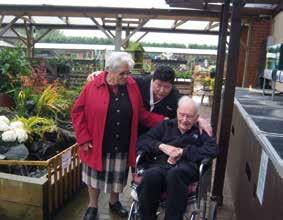
Providing care for the elderly and those
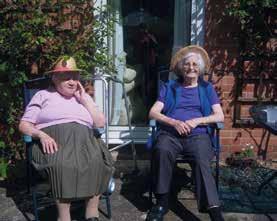
gardens where our residents have the conservatory and a separate dining room.
varied range of freshly made meals, with special diets catered for.
Our Services Include:
• Permanent, Long Stay, Respite and Day Care
• co-ordinator
• therapy
• Freshly made meals
• wheelchairaccess throughout
• All rooms have wireless nurse-call points and are decorated to a high standard
• Large secluded gardens giving a safe and quiet area to relax

• Close to local shops and public transport
• Registered with the CQC and Northamptonshire County Council
Recite Me
North Northamptonshire Council and West Northamptonshire Council’s distribution of this publication does not constitute support or recommendation of any of the products or services advertised or listed within. All the listings in this publication are supplied by the Care Quality Commission (CQC) and neither North Northamptonshire Council, West Northamptonshire Council nor Care Choices can be held responsible for any errors or omissions. Every effort has been made to ensure that the information is accurate at the time of going to print. However, no responsibility can be held by North Northamptonshire Council, West Northamptonshire Council or Care Choices for verifying claims made by advertisers.
To obtain extra copies of this Directory, free of charge, call your local council’s Customer Service Centre. In North Northamptonshire, call 0300 126 3000. In West Northamptonshire, call 0300 126 7000

www.carechoices.co.uk/ The e-book
for those requiring information in the spoken word.










The Care Services Directory has been designed to provide information on the care and support services available in Northamptonshire.
It is hoped that the Directory will assist you in making the right choices and provide useful information and advice when making decisions about the right adult care services to meet your needs.
The Directory has also been designed in a way which is hopefully easy to understand, but should you need further information it can be viewed both electronically, using compatible software, and listened to through Recite Me by visiting the Care
Choices website at www.carechoices.co.uk
For more information about the range of services delivered by Northamptonshire Adult Social Care, you can visit the countywide website at www.northamptonshire.gov.uk/adultsocialcare
Councillor Helen Harrison
Cabinet member for Adult Social Care
North Northamptonshire Council
Councillor Matt Golby
Cabinet member for Adult Social Care
West Northamptonshire Council
If you feel you need support, you should have an assessment of your needs to establish what you might need help with and if you have eligible support needs.
Your first step should be to visit your local council’s website, www.northnorthants.gov.uk/adultsocial-services in North Northamptonshire and www.westnorthants.gov.uk/adult-socialservices in West Northamptonshire, where you will find information to help you understand how Adult Social Care works and how to request an assessment. Alternatively, you can contact your local council’s Customer Service Centre.
North Northamptonshire Council
Tel: 0300 126 3000 (Monday to Friday, 9.00am to 5.00pm. Closed on bank holidays).
Web: www.northnorthants.gov.uk/contactus
West Northamptonshire Council
Tel: 0300 126 7000 (Monday to Friday, 9.00am to 5.00pm. Closed on bank holidays).
Web: www.westnorthants.gov.uk/your-council/ contact-us
If you are in hospital, you should ask a nurse on your ward to refer you to the Hospital Assessment Team based in the hospital.
Your assessment is about you, and you can be supported to complete it. It involves you answering some questions about your life, what you can do and what you feel you need help with so you can live as independently as possible. With your agreement, your local council may also talk to other people who know you, or support you, including your doctor or nurse if you have one.
You can request an assessment via your local council’s website. You may need to be visited in person to perform your assessment. If this is the case, your local authority’s Customer Service Centre will pass your information to the social care team based in your area. An assessment worker will then visit you at home to carry out an assessment.
Please see page 43 for details of financial assessments, which may also be required.
This will depend on how urgent your needs are and to what extent your difficulties are affecting your independence. Your assessment should be completed within 28 days but, if your situation is urgent, your assessment will be completed as soon as possible.
Am I guaranteed to receive support directly from my local council?
Your assessment will provide the information needed to decide whether you are entitled to support from Adult Social Care. Not everyone who has needs will be entitled to support, but you will always be supplied with information and advice to help you. You may be directed to other professionals, such as your GP, an occupational therapist for equipment or your local housing department if it is better placed to meet your needs.
To decide whether you’re eligible for care and support, the national eligibility criteria as set out in the Care Act 2014 are used. During your assessment, the difficulties you are facing and how much this affects your independence and wellbeing will be looked at. If your assessment shows that you have eligible needs, i.e. your independence or wellbeing is being significantly affected, you may be able to get some help.
What happens after my assessment if I am eligible for support?
If your assessment shows that you have unmet

eligible needs, you are likely to be entitled to support from Adult Social Care. Your local council will discuss with you what options and services are available to help you and you will receive help to plan the best way to manage your support. You will also receive a financial assessment to identify whether you will have to contribute towards the cost of your care.
Your assessment and all subsequent advice is free, but it is likely that you will need to pay towards the cost of any support services you receive.
During your assessment, this will be discussed with you, and you will be asked to complete a financial assessment to determine how much you should contribute towards any services you receive. Further information about contributions and charges can be found beginning on page 43.
If your assessment has shown that your needs are not eligible for support from the council, it will provide you with information and advice to enable you to arrange assistance for yourself. Council funding is provided to many voluntary sector organisations that can support you with advice, information and services designed to help you stay independent in your own home. There may be a charge for these services. See the list of organisations beginning on page 62
A Personal Budget is an allocation of money from your local council that you can use to meet your eligible needs. It gives you choice and control to ensure that the support and services you receive meet your individual needs.
Personal Budgets are available for anyone over the age of 18 who is assessed as being eligible for Adult Social Care support.
The amount you receive as a Personal Budget will depend on the outcome of your needs assessment.
If you are eligible for a Personal Budget, you have a choice of how you would like to receive it. The choices include:
• The money going straight into a pre-paid card account.
• The money going to someone who agrees to administer it on your behalf, via a pre-paid card account.
• Having an Individual Service Fund, where a service provider administers the Personal Budget on your behalf.
• The above options being paid net of your financially assessed contribution.
Joan is in her early 80s, lives in a village in the south of the county and has developed dementia, so needs some help to keep her daily routines going. She used to have a care agency and go to a local day centre but found that she was more confused by the different people coming into her home. Joan didn’t get on so well at the day centre either, because she would forget who people were and why she was going.

Joan’s family don’t live locally but they worked together with Joan and spoke to people around her, such as friends and neighbours. They found out that there were two neighbours who wanted to do a little bit of work but also had young families, which made it difficult to get work that fitted around school times.
Joan is now helped by those neighbours with her
• Your local council managing your Personal Budget and purchasing services on your behalf in consultation with you and invoicing you for your financially assessed contribution.
You can use your Personal Budget for things which help you meet your eligible needs; this will be agreed with your local council in a support plan.
The limitations of using a Personal Budget are that it must be safe, legal, healthy and not used for any form of gambling.
For further information, search ‘support plans and personal budgets’ on your local council’s website. See page 5.
daily routines. Joan pays for their support out of her Personal Budget.
Joan knows them as her neighbours in the street, which means she doesn’t get so confused when they come to see her. They also pop in and check on her in their own time and Joan enjoys it when they bring their children along to say hello.
Joan also has a retired friend who is happy to take her into town to do a bit of shopping and go to a coffee shop or sometimes go to watch a film at the cinema, which she had always enjoyed in her younger years. Joan’s friend doesn’t get paid for this, but Joan pays for petrol costs and will buy her friend some flowers every now and again to say thank you for her help.
With so many providers to choose from, where do you start?
A Personal Health Budget is an amount of money to support a person’s identified health and wellbeing needs, planned and agreed between the person and their local integrated care board (ICB), if certain eligibility criteria are met.
Personal Health Budgets are designed to give you as much control over your healthcare as you wish.
They are intended to be used in a range of ways to meet your identified health needs.
Most people will return home from hospital without support. However, it is recognised that some people may require some short-term additional support.
Should the ward consider you to require additional support on returning home following discharge, you will be referred through the relevant discharge process for your area.
Reablement offers support to help you regain confidence and skills to live independently. This support is provided for a very short time, anything up to four to six weeks.
You may already be at home, or about to return home from a specialist care centre or a hospital, are ill, or have had some kind of accident or change in your life. Some people will only need a little support, others a great deal. The team will support you to either get back on your feet or identify how much support you may need in the future.
Intermediate care aims to give recovery and rehabilitation support to enable you to regain your independence when you come out of hospital or, just as importantly, prevent you from going unnecessarily into hospital. Intermediate care may be provided by care staff, occupational therapists and physiotherapists, with additional support provided by the local GP surgery, social workers and community nurses. It is usually provided for up to six weeks. In Northamptonshire, this service is
This could mean you return home with a period of reablement in your own home (see the information below about reablement) and you will also receive an assessment of your possible ongoing care needs. For the more complex discharges, you may be referred to Adult Social Care for a comprehensive assessment of your possible ongoing care needs.
This service is not chargeable for up to six weeks as long as you are making progress. However, if after a period of reablement the team assesses that you are going to need homecare in the long term, the service then becomes chargeable.

Reablement accepts professional referrals only. For more information about START or if you feel you need a social care assessment, contact your local council’s Customer Service Centre. See page 5 for contact details.
provided jointly by the countywide Crisis Response Team (CRT) and Northamptonshire Healthcare NHS Foundation Trust’s Intermediate Care Team (ICT).
Care and repair services are offered by Home Improvement Agencies (HIAs). They offer a wide range of practical support and advice about improving your home. For example, HIAs know who can help with major adaptations covered by a Disabled Facilities Grant.
Most HIA services are for older and/or disabled people living in private sector housing (owneroccupiers and tenants of private landlords).
Care and Repair (Northamptonshire)
An independent charitable home improvement agency helping vulnerable people and their carers across Northamptonshire remain independent at home by carrying out practical measures to keep them warm, safe and secure. The organisation provides support to people of all ages in all tenures of property.
The service includes information and advice, home assessments and a comprehensive range of repairs, improvements and adaptations including electrical, carpentry, plumbing and building works.
• Handyperson service: odd jobs, lighting and light bulbs, key safes, curtain tracks and blinds, shelving and installation of white goods.
• Home security improvements: doors, windows, lighting and gardens.
If you require a major adaptation such as a stair lift, through-floor lift, walk-in shower, or wheelchair accessible extension, you will need to have an assessment. See page 5 for contact details.
You will also be required to complete a means-test and, once this is completed, you may be referred for an Occupational Therapy assessment.
If you require a new or replacement stair lift, you need to contact your local council. See page 5.
• Falls prevention works: including grab rails, stair rails and half steps.
• Disability adaptations: low-level access showers, wet rooms, modular ramping and handrail systems.
• Home warmth improvements: draught exclusion measures, radiator foils, repairs to doors and windows, chimney balloons and heating improvements.
• Home safety: gas safety checks and repairs, carbon monoxide detectors and smoke alarms.
• Child safety: including bespoke works for specialist needs.
• Bathrooms and kitchens
• Fencing and gating
• Larger building and renovation works
Hardship funding and charitably funded projects may be available, subject to availability and client eligibility. Free, no obligation quotations are provided for all charged-for works.
For all enquiries
Tel: 01604 782250
Email:
office@careandrepairnorthamptonshire.org.uk Web:
www.careandrepairnorthamptonshire.org.uk
www.carechoices.co.uk
• Find care providers quickly and easily
• Search by location and care need
There are lots of examples of equipment that you could use around your home to help you with day-to-day tasks. If you are not sure which items might help you, AskSARA is an online self-help guide that could be useful. Visit https://asksara.livingmadeeasy.org.uk
If you need adaptations or equipment to help you manage at home, you will need to contact Community Occupational Therapy.
The team will carry out an assessment to get a clearer picture of the difficulties that you are having (e.g. bathing, climbing stairs, or transferring from a chair to a bed) and advise you about whether you are eligible for help from them. If you are, they may provide items of equipment that could help you.
If you are not eligible, you will be given information about other services that may be available.
Referrals to the team can be made through your local council’s website. Visit www.northnorthants.gov.uk/adult-socialservices/living-home in North Northamptonshire and www.westnorthants.gov.uk/adult-socialservices/living-home in West Northamptonshire. Alternatively, you can contact your local council’s Customer Service Centre. See page 5.
If your Occupational Therapy assessment shows that you are eligible for equipment, the Northamptonshire Community Equipment Service will make an appointment with you to deliver
and fit it. If you wish to return or repair a piece of equipment that belongs to Millbrook Healthcare, which provides equipment countywide, call 0330 124 1219.
Assistive technology enables you to improve your independence and safety at home by providing access to a wide range of sensory equipment and software.
Assistive technology is designed to manage risks to your health and safety in the home environment, empowering you to find new ways that everyday activities can be confidently and independently completed.
Areas that assistive technology can support:
• Epilepsy – examples include watch alarms and sensor mats.
• Falls prevention – emergency alarms for people at risk of falling.
• Forgetfulness – examples include sensors and alarms.
• Hearing – visual alarms in the home connected to fire alarms, telephones and doorbells.
• Physical frailty – connected home help at the touch of a button.
• Sight – talking clocks and reminders.
• Learning disability – personalised interactive devices to assist the user to be independent.
Equipment can be provided free of charge if you meet the eligibility criteria. For more information about eligibility, see page 5
The lifestyle site for parents and carers of children with additional needs and those who support them.
• Birth to adulthood
• Real life blogs
• Directory
• Ask the experts
• Monthly columnist www.myfamilyourneeds.co.uk
hello@myfamilyourneeds.co.uk
We suggest you consider the following questions before buying any assistive technology. If you are in any doubt about what technology might help meet your needs, you can contact your council or visit https://asksara.livingmadeeasy.org.uk
You can download and print this checklist at www.carechoices.co.uk/checklists
Does the equipment support your specific needs?
Are you willing to use it?
Will it fit into your everyday life and routine?
Have you tried a demo of the equipment?
Do you understand what the equipment is for?
Do you need to take it with you when you leave the house? Is it transportable?
Does the equipment have any limitations that would make it unsuitable for you?
Will it work alongside any assistive technology you already have?
Is a simpler piece of equipment available, e.g. a pill case rather than an automated pill dispenser?
Does the equipment need a plug socket, and will its wire cause a trip hazard?
Is it easy to use? Can you read/hear it clearly and are any buttons big enough for you?
Are you able to use it? Are there any aspects you don’t understand?
Is it portable?
Will it need to be installed by a professional?
Can the retailer provide you with training in using the equipment?
Will it work if you have pets or live with other people, e.g. could someone else set off a sensor alarm by accident?
Have you read reviews of the particular piece of equipment you are looking at? Consider these before making your purchase.
Can you speak to someone who already uses it?
Does it require batteries? Find out how often they will need changing and whether the equipment will remind you to do this.
Is it durable? If you might drop it, is it likely to break?
Do you know how much it costs?
Will you need to pay a monthly charge?
Are there alternative solutions that might be free?
Is there a cost associated with servicing the equipment?
If you’re having difficulties with everyday tasks at home, these simple solutions could make life easier and keep you independent. These are a starting point; other solutions are available which might better suit your needs.
Finding it difficult to get in and out of chairs? Try putting a piece of hard board under the seat base. Alternatively, buy chair raisers, a higher chair or an electric riser chair. Also try taking regular gentle exercise to improve your mobility.
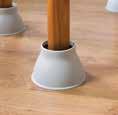
If you can’t reach your windows, could you move furniture out of the way? Ask someone to help if you need to move heavy furniture. There are also tools for opening and closing windows.
Struggling to keep warm/cool? Consider a fan or heater. Is your house insulated? Are there any draughts? You may also be eligible for the winter fuel payment from the Government. Visit www.gov.uk/winter-fuel-payment
If you have trouble using light switches, think about replacing your switches for ones that are easier to use. Consider handi-plugs or light switch toggles, or there’s even technology available so that you can turn your lights on and off using your speech.
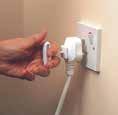
Use subtitles if you can’t hear the TV or buy wireless headphones. Do you need a hearing aid? Request an assessment from your council.
Do you forget to take your tablets? Try making a note of when you’ve taken them, or buy an automatic pill dispenser or pill box. If you struggle to open your medicine, you can ask your pharmacist for advice on alternative packaging that could make it easier for you.
Can you reach everything in your cupboards? If not, try a handi-reacher or rearrange your kitchen so the things you use most are within easy reach.
If you are having problems with preparing food, consider buying ready-chopped options or try a chopping board with spikes. There are also longhandled pans, teapot tippers and lid grippers that could help. Palm-held vegetable peelers or a food processor might be a solution and meal delivery services are also available.
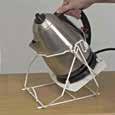

Is eating and drinking becoming difficult? Large-handled cutlery could help, or non-slip mats for the table. Lightweight cups and mugs with two handles could also be a solution.
Using taps can be made easier by fitting tap turners. You could also consider changing to leverstyle taps which might be easier for you to use.

More information on staying independent and ideas to help you live at home can be found online at www.carechoices.co.uk/staying-independent-at-home/ There is also information on making larger adaptations to your home.
If moving whilst in bed is a problem, have you thought about using an over-bed pole? You might also want to buy a pillow raiser or change your bedding so it’s lighter.
Is it becoming difficult to get dressed? If so, specially adapted clothing is available, or you could buy a long-handled shoe horn, a dressing stick or a button hook. If you are having a lot of difficulty, consider home support, see page 9.
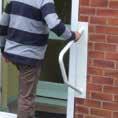
Clocks are available with large numbers or lights if you can’t read the time in bed. You can also buy clocks that speak the time.
If you are finding it harder to read in bed, consider an e-reader that allows you to change the font size. Some also have integrated lights. Look for bedside lamps with a step-on or button switch if yours are difficult to use.
Do you struggle to get in and out of bed? You could learn new ways of moving around, purchase a leg lifter or a hoist or install grab rails for support. Seek advice about these options. If the bed is the issue, you could buy an electric adjustable bed or raise the bed to the right height.
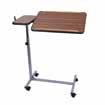
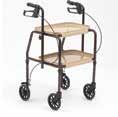
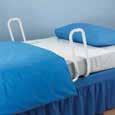
If it’s hard to hold your toothbrush, try a toothbrush gripper. You might also benefit from having an electric toothbrush or sitting on a stool while brushing your teeth.

You might like to buy a raised toilet seat, or a seat with a built-in support frame if it’s hard to use your toilet. Flush lever extensions are also available.
Has it become more difficult to wash? Items are available, like long-handled sponges and flannel straps. You could also consider a slip-resistant bath mat, grab rails, a half step to help you get in and out of the bath or a bath or shower seat. Tap turners can also be used in the bathroom.
For more information on technology that could make your life easier, contact your council. They might refer you to an occupational therapist (OT) or you could contact an OT privately.
See page 5 for contact details of your local council’s Customer Service Centre.
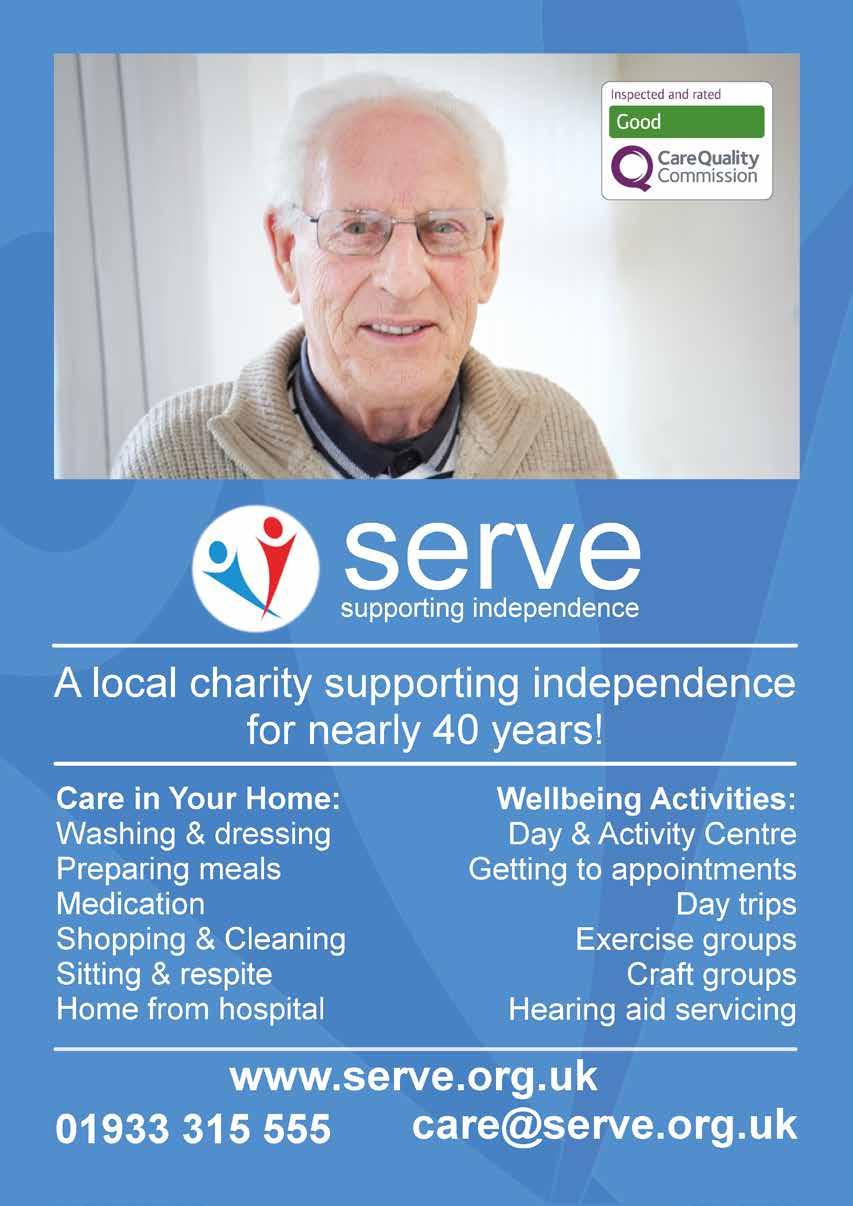
You may not see yourself as a ‘carer’ – you may see yourself as a spouse, son, daughter, partner, friend or neighbour. But if you regularly support and care for someone who could not manage without you, then you are a carer. There is help available to support you to carry on with your caring role.
If you provide, or intend to provide, regular unpaid support to someone who could not manage without your support, the law (Care Act 2014) says you have the right to have your own needs assessed, even if the person you care for has refused support services or an assessment of their own needs. This assessment is called a ‘carers’ assessment’.
A carers’ assessment gives you the chance to discuss your caring role and how it affects your life with a Carers’ Assessment and Support Worker. It is informal and is not a test to see if you are able to care; it is a way of finding out what your needs are as a carer and of finding ways to support you. The discussions are confidential, and you will not be committed to anything that you are not happy with. Discussions may include:
• Any concerns you may have about the person you care for.
• How caring affects your own health and wellbeing.
• What help and support is available.
• How to get a break from your caring role and have time to yourself.
• What would happen in an emergency.
• Help with balancing caring with employment and support to return to either paid or voluntary work.
• How to get help with benefits and legal matters.
• Future and advanced planning.
• Training and leisure needs.
• The possibility of a Direct Payment as a carer (subject to eligibility).

• Access to Sitting Services.
• Any other questions, issues or concerns you have.
Carers’ assessments can be requested through Northamptonshire Carers
The Anne Goodman Centre for Carers, 123 Midland Road, Wellingborough NN8 1LU

Tel: 01933 677907
Email: carers@northamptonshire-carers.org Web: www.northamptonshire-carers.org
Voluntary organisations that provide carers’ services in partnership with Northamptonshire Carers include the following.
SERVE – provides social activities and opportunities, and training for carers across Northamptonshire.
TuVida – provides an emergency and planned breaks service. The aim of this service is to provide emergency breaks and rapid response support to carers at short notice, to deal with emergency situations or to prevent a crisis from occurring. The service also provides support for one-off appointments and events to offer the carer more support and flexibility to deal with life’s unexpected events. The services operate 24 hours a day, seven days a week.
Alzheimer’s Society – believes passionately that life doesn’t end when dementia begins. It is there for anyone affected by dementia and aims to keep people with dementia connected to their lives and the people who matter most. Alzheimer’s Society has a host of factsheets, a helpline and an online forum where people can talk to others in a similar situation. These resources can also be useful for carers.
Services for people living with dementia and their carers include Memory Matters Groups and Singing for the Brain. For more information, see page 52
• hairdresser,

My Family, Our Needs is an online resource providing impartial information for parents, carers and practitioners supporting children from birth to 25 years with additional needs. As well as guidance, policy and signposting, there
Home care services aim to help those struggling to cope in their own homes with daily activities such as getting in and out of bed, washing, dressing or going to the toilet. They can also help with daily living or domestic tasks like laundry, shopping and some meal preparation. Care in your own home is often referred to as either ‘domiciliary’ or ‘home care’. Most council-funded home care is contracted out to private companies, rather than being a local authority home care service.
The amount of support you receive will depend on your assessed eligible needs. The care workers delivering your support must be specially trained in areas such as manual handling (lifting and moving people), first aid and food hygiene, and background checks must have been carried out with the Disclosure and Barring Service.
Care in your home is dependent upon your specific needs.
This may be to assist you with household chores such as shopping, cleaning and assistance with food preparation. It may also involve a care worker accompanying you on trips out.
In addition to low-level care this will normally involve personal care (assistance with washing, dressing etc.) and/or a care worker to assist with mobility.
If you are eligible, home care can be funded in part or whole by your local council, depending on the result of your needs and financial assessments. Alternatively, you could make private arrangements directly with home care providers. If you receive Attendance Allowance or Personal Independence Payments, you may choose to use
is a lifestyle section for parents covering topics such as health and wellbeing, work, family and relationships.
Visit www.myfamilyourneeds.co.uk
This involves visits by two or more care workers who assist people with high dependency needs, such as being transferred from a bed to a chair etc. Care workers may also require specific training to understand any health needs.
Live-in care involves a care worker living in your home. They must be allowed time off each day and must have a night’s sleep. Live-in care can be arranged as a short respite for your main carer or a permanent arrangement to suit your needs.
This is required when a person needs assistance or monitoring through the day and night; it differs from live-in care as care workers work on a roster to ensure that a care worker is on duty and awake both day and night. Some care agencies are also registered as nursing agencies which means they can provide registered nurses if required.
All service providers delivering personal care must be registered and inspected by the Care Quality Commission (CQC). You can check a service’s latest CQC report at www.cqc.org.uk or call the CQC on 0300 061 6161. For more information about the CQC, see page 57
Listings of home care providers start on page 21.
this towards your home care support. Although your local council is committed to supporting people to remain living at home wherever possible, it will seek to meet the assessed needs of people who are eligible for funding support in the most cost-effective manner. For more information on paying for care, see page 43.
People across Northamptonshire are choosing to stay in the comfort of their own homes with Elder live-in care. We work with both families and local authorities to find a skilled and vetted carer who can move in, and help transform later life.

Provides personalised, one-to-one care
Supports a range of needs from personal care to housekeeping
Protects a person’s way of life
Provides a better continuity of care
Can support recovery and health outcomes
Helps older couples to stay together home
Care can be arranged quickly
Every carer is DBS checked, assessed, and referenced
Elder provides choice and matches patients and their families. The service is always responsive and in some cases the request for a carer has been arranged within 48 hours - I couldn’t recommend Elder more highly.
Dr Mashkur Khan, Consultant Geriatrician
We suggest that you have paper with you when speaking with home care agencies so you can make notes. You can download and print this checklist at www.carechoices.co.uk/checklists
How long has the agency been operating?
How long are staff allocated per visit?
Can you contact the agency in an emergency or outside office hours?
Does the agency have experience with your specific needs?
Are you likely to be visited by different staff each day?
Are all staff checked with the Disclosure and Barring Service?
Will you be notified in advance if your care worker is on holiday or sick?
Are staff matched to you specifically, based on your needs and preferences?
Can you meet your care worker(s) before they start?

Does the agency have both male and female staff?
*See page 57.
Can the agency accommodate your needs if they increase? Ask about the process for this.
Does the agency have a training scheme in place?
Are all staff trained to a certain level?
Are staff able to help with administering medication if required?
Is there a way for staff to communicate with each other about the support they provide when they visit you? How?
Will your support plan be reviewed at regular intervals?
Can you see the agency’s contract terms?
Can you lodge a complaint easily?
Are complaints dealt with quickly?
Can you see a copy of the agency’s CQC registration certificate and quality rating?
At Carewise, our team is caring by nature and goes the extra mile to enable you to live, as independently at home and within your local community, as you wish.


We provide a comprehensive person-led range of quality home care services, as well as regular social activities including day trips, lunches out, access to arts & crafts and musical events.
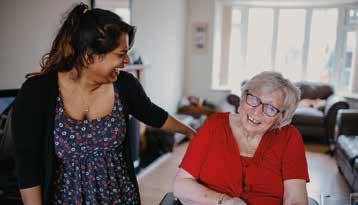






OUR SERVICES: respite care
• complex care companionship
1:1 support
• adult care
• domiciliary care
• domestic support
We are there for our clients as comprehensive, friendly and professional Home Health Care Service. We tailor our caregiving services to suit every individual client’s needs. We are a team of nurses and healthcare assistants with experience working in hospitals and in the community.
Live In Care
• dementia support
• supported living
We provide 24 hour support in the comfort of your own home. Our compassionate experienced carers will ensure you live a good quality of life with optimum independence.
Tel: 07943 579 974 Email: info@flexidirecthealthcare.co.uk

www.flexidirecthealthcare.co.uk
Enlightenment Care Services your peace of mind is our priority”
We specialise in supporting and caring for people with physical and/or mental health needs through a wide range of services which include medication, domestic support and social company designed to suit individual circumstances.

01536 400460 or 07548 864 298
info@weareenlightenment.co.uk www.weareenlightenment.co.uk
Enlightenment Care Services
The Business Exchange Rockingham Rd, Kettering NN16 8JX
E NLIGHTENMENT C ARE S ERVICES IS A DEDICAT ED AND RELIABLE C ARE P ROVIDER SERVING THE E AST M IDLANDS
E NLIGHTENMENT C ARE S ERVICES IS A DEDICAT ED AND RELIABLE C ARE P ROVIDER SERVING THE E AST M IDLANDS .
Enlightenment Care Services, Grosvenor House, George Street, Corby NN17 1QB
W ITH A WARM AND PERSO NAL TOUCH , WE ENDEAVOUR TO PROV IDE THE NECESSARY SUPPORT THAT ENABLES OUR CLIENTS TO LIVE COMFORTABLY AND INDEPENDENTLY WITH IN THEIR OWN HOMES
W ITH A WARM AND PERSO NAL TOUCH , WE ENDEAVOUR TO PROV IDE THE NECESSARY SUPPORT THAT ENABLES OUR CLIENTS TO LIVE COMFORTABLY AND INDEPENDENTLY WITH IN THEIR OWN HOMES .
W E SPECIALISE IN SUPP ORTING AND CA RING FOR PEOPLE WITH PHYSICAL AND MENTAL DISORDERS .O UR H OME C ARE PACKAGES ARE COM PREHENSIVE AND WE PR OVIDE A WIDE RANGE OF SERVIC ES WHICH INCLUDE MED ICATION , DOMESTIC SUPPORT AND SUPPO RTIVE COMPANY C ARE AND SUPPORT CAN BE PROVIDED ACCORDIN G TO YOUR NEEDS AND FINANCIAL SITUAT ION .
W E SPECIALISE IN SUPP ORTING AND CA RING FOR PEOPLE WITH PHYSICAL AND MENTAL DISORDERS .O UR H OME C ARE PACKAGES ARE COM PREHENSIVE AND WE PR OVIDE A WIDE RANGE OF SERVIC ES WHICH INCLUDE MED ICATION , DOMESTIC SUPPORT AND SUPPO RTIVE COMPANY . C ARE AND SUPPORT CAN BE PROVIDED ACCORDIN G TO YOUR NEEDS AND FINANCIAL SITUAT ION .
A T E NLIGHTENMENT C ARE S ERVICES WE RECOGNIZE OUR CLIENTS AS INDIV IDUALS AND IT IS IMPORTANT FOR US TO UNDERSTAND AND PROVI DE RELEVANT SUPPORT ACCORDING TO YOUR NEEDS . W E HAVE A DEDICATED T EAM OF COMPASSIONATE AND FRIENDLY CAREGIV ERS COMMITTED TO PROVIDI NG PERSONALISED SUPPORT .
A T E NLIGHTENMENT C ARE S ERVICES WE RECOGNIZE OUR CLIENTS AS INDIV IDUALS AND IT IS IMPORTANT FOR US TO UNDERSTAND AND PROVI DE RELEVANT SUPPORT ACCORDING TO YOUR NEEDS . W E HAVE A DEDICATED T EAM OF COMPASSIONATE AND FRIENDLY CAREGIV ERS COMMITTED TO PROVIDI NG PERSONALISED SUPPORT .
W E UNDERSTAND THAT BE ING IN CONTROL OF YO UR OWN LIFE AND CARE IS IMPORTANT TO YOU , WHICH IS WHY WE DESI GN OUR SERVICES TO S UIT YOUR PERSON AL CHOICES AT EVERY STAGE .
W E UNDERSTAND THAT BE
F ROM SIMPLE TASKS TO COMPLEX CARE PACKAGE S , SHORT - TERM REHABILITATION SUPPORT TO END OF LIFE CARE , OUR CARE WORKERS AND SERVICE SUPPORT TEAM S CAN HELP .
Caroline Cares for You Ltd
Crisis
Cera
Cherry
Chiron
CICA
We provide Domiciliary Care Services, Supported Living Services and Accommodation Services. We operate from several sites within UK and serve a culturally and socially diverse population.
We offer these key services:
• Dementia care
• Older adults care



• Young people
• Respite care
• Mental health care
• Learning disability care
• Sensory impairment care
• Sit ins and Live in care
We support Care in the Community and the delivery of personalised services because we believe in self-directed support and that everyone should have choices and control over their own lives and to be able to make decisions about their chosen lifestyle, particularly if it means remaining in their own home. We value the care each individual receives from their relatives or others close to them and therefore at IDG Care, we aim to work alongside them and to include them in the service we provide.
• Find care providers quickly and easily

• Search by location and care need
• Information on care quality
• Links to inspection reports
• Additional information, photos and web links
• Brochure requests


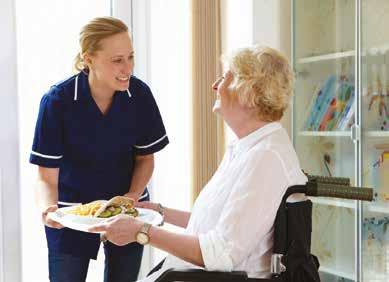

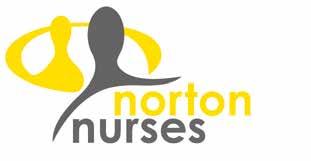

Johnson House
Wellingborough
Tel: 01727 220323
K.C. Carers Ltd
Daventry
Tel: 01327 226313
Kifash Care
Northampton
Tel: 07581 360422
Kinder Home Care Services
Kettering
Tel: 07721 187707
Kwikfix Recruitment Services Ltd
Northampton
Tel: 01604 603200
Lavender Support Services Ltd

Wellingborough
Tel: 01933 653511
MH YA
D PD SI YA
PD LDA MH SI YA
LDA MH SI YA AD
MH SI YA
Tel: 08000936935 Email: info@medianwellness.co.uk
At Median Wellness we provide reliable and personalised care and support services to people in Milton Keynes, Bedfordshire, Buckinghamshire, and surrounding areas. Median Wellness has experience and good reputation in delivering support to individuals at the comfort their own homes.

Support we provide:
day-to-day tasks like food and drink preparation helping with medication undertaking domestic tasks such as cleaning laundry and ironing going shopping
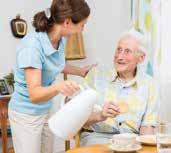
We also provide both Live-In Care and Visiting Care on a 24/7 basis.
Median Wellness is registered with the regulator Care Quality Commission and achieved ISO-9001-2015 accreditation.
To find out more, please visit our website www.medianwellness.co.uk
Premium Care Solutions Ltd 63 Headlands, Kettering, Northamptonshire NN15 7EU
Tel: 01536 213680 Fax: 01536 482716

Email: jgarcha@premium-care.co.uk
Here at NNCA we offer a variety of services to suit your needs, we can tailor your package to suit your lifestyle. Our services include:
NNCA have a wide range of staff to help look after all ages from children through young adults to the elderly and frail. All our Staff are criminal record checked and are trained professional care givers.

Premium Care Solutions is recognised nationally for our expertise in planning and providing the very best complex care for adults, children & young people with complex care needs requiring care at home. We have over 20 years of experience supporting people to live the best possible life independently in the community.

Our approach is ‘person centred’, meaning that we adapt and work with everyone’s needs.
As a Complex Care Provider, we offer expert care at home to all of our clients, based on:
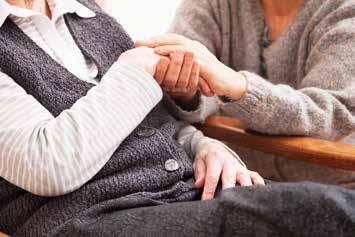


• Individually designed packages of care for clients with SCI, ABI, MND, Parkinson’s and Cerebral Palsy
• Nurse-led clinical oversight of each package
• Support when a client or care staff need it
• Ventilator dependency
• Tracheostomy support
• Bespoke recruitment
With so many providers to choose from, where do you start?
Research suggests that there are key actions we can take to maintain our physical health and mental wellbeing as we grow older.
By making a few small changes to the way we live,
Services aiming to make the local population healthier and reduce the differences between the health of different groups by promoting healthier lifestyles, following advice from the Government and supporting action by Public Health England, the NHS and the public.
For the full list of information and services available, visit www.northamptonshire.gov.uk/ councilservices/health
The Supporting Independence Programme (SIP)
The programme provides up to 12 weeks of one-to-one support for people living with mild frailty, those who may have slowed a little, are feeling less confident getting around or need someone to provide help on a regular basis.
Advisers work with customers to identify and address the factors contributing to their frailty. This could be supporting them to increase their levels of physical activity, helping them to access medication reviews or providing emotional or nutritional support and advice. Support can be face-to-face or over the phone depending on the preference of the customer. This assessment can be completed by anyone living in North or West Northamptonshire, or completed by a medical professional on someone else’s behalf, to see if they would be eligible for independence support.
Visit www.northamptonshire.gov.uk/ councilservices/health and select ‘Supporting independence’ to complete an independence assessment. If you are unsure which council covers your area or have experienced technical issues completing the assessment, call 0300 126 3000 or email sipinfo.ncc@northnorthants.gov.uk
we can make big changes to our own health, and this can have a beneficial impact on the wellbeing of our family members and those we care for. The following are the key ways to maintain our physical health and mental wellbeing.
Each year, around one in three people over the age of 65 has a fall, resulting in significant injury. Falls are not an inevitable part of growing older and admitting to falling will not mean any loss of independence.
There are lots of things you can do to help reduce the risk of falling. This includes speaking to your pharmacist about the medicines you are taking, making simple changes to the home environment, and doing exercises to improve strength and balance. There is an online self-assessment tool that can provide you with a personalised plan to address any risk areas, as well as providing helpful advice and suggestions to further reduce your risk of falls. Visit www.steadyonyourfeet.org/assessment
Specialist assessment and advice is available from a specialist Falls Management Service to those people who have a high fear of falling or a history of having falls. The service is open to anyone who lives in North or West Northamptonshire and is made up of a multi-disciplinary team of specialist falls practitioners (including nurses, occupational therapists and physiotherapists, a senior doctor and a podiatrist).
Referrals can be made online at www.northamptonshire.gov.uk/falls (select ‘Find support if you are at risk of a fall’) or by contacting your local council’s Customer Service Centre. See page 5. Additional advice and guidance targeted at preventing falls, such as becoming more active, is also available on this website.
Local Get Up and Go strength and balance exercise sessions are also available. Visit www.northamptonshiresport.org/getupandgo
If you are aged between 40 and 74 years old, you may be offered a free NHS Health Check. Your free check will find out if you are at risk from some health problems, tell you how to look after your health and help you change things in your life to make your health better in the future.
As we get older, there is more chance that we will have problems with our health. Some of the most common problems are strokes, heart attacks, high blood pressure, kidney disease and diabetes. A free NHS Health Check will tell you how to give yourself the best chance of avoiding these problems.
The healthcare professional completing the check will test to see how likely you are to get heart disease, type 2 diabetes, kidney disease or a stroke. The appointment will take about 20 to 30 minutes.
The NHS Health Check helps to find out about possible problems early, making it easier to stay healthy. If you have a history of heart problems, strokes, type 2 diabetes or kidney problems in your family, you may be more at risk. If you do something now, it could enable you to make better life choices. Even if you are feeling well, it is worth having your NHS Health Check now to improve your chances of avoiding these health problems in the future.
If you would like help with your weight, doing more exercise or to stop smoking, the medical professional will help you. They may also give you medicine to help you depending on your results. Everyone between the ages of 40 and 74, who does not have one of the conditions mentioned above, will be asked to come back for a check every five years.
If you are concerned about your own or someone else’s drinking or drug use, you can contact STAR.
It’s free and confidential, just call 0808 169 8512 between 9.00am and 4.30pm, Monday to Friday.
STAR, which stands for Support, Treatment, Advice and Recovery, is a partnership between the following local drug and alcohol services:
• Aquarius: offering training on drugs and alcohol to professionals, as well as support for people with gambling difficulties.
• The Bridge: peer support project for people who want support to control, reduce or cease their drug/alcohol use.
• Family Support Link: works to reduce the physical, psychological and emotional harm caused to families living with, or caring for, someone who is addicted to drugs/alcohol.
• NGAGE with Aquarius: an early intervention drug and alcohol service for young people aged 10-18.
• Substance to Solution: recovery-focused support and treatment for drugs and alcohol.
If you call STAR, your call will be answered by a specially trained member of staff. They understand the difficulties drug and alcohol misuse can cause and can help you access the right support from different drug and alcohol support agencies.
You are four times more likely to give up smoking with professional support, compared to doing it alone.
Giving up smoking is the most beneficial thing you can do to improve your health. Within just one year of quitting, you can halve the risk of heart disease.
Get in touch to find out more or book an appointment today to start your journey to a better, healthier life. Call 0300 126 5700.
Useful websites
Better Health
Comprehensive advice and information about staying well.
Web: www.nhs.uk/better-health
Healthier families
Easy ways to eat well and move more.
Web: www.nhs.uk/healthier-families
NHS eat well
Web: www.nhs.uk/live-well/eat-well
Northamptonshire Sport Web: www.northamptonshiresport.org
Ramblers Wellbeing Walks
Web: https://beta.ramblers.org.uk/go-walking/ wellbeing-walks
At some point in our lives, many of us will face the prospect of no longer being able to cope on our own at home. This section describes housing options that you might like to consider if continuing to live in your current home is becoming challenging, but you do not require residential care.
You can search for more detailed information about
housing options available in your area by visiting www.housingcare.org
If you think you may have a care need and would like to be considered for an assessment, please contact your local council’s Customer Service Centre. See page 5. If your current housing is not suitable then housing options can be explored alongside your care needs.
Assisted Living and Extra Care are housing-based services, which allow you to own or rent your own home and access care and support services based on site. Schemes may provide:

• Rented, shared or outright ownership or leasehold tenancies.
• A dedicated staff team to provide services at a level appropriate to the needs of all tenants with maximum flexibility.
• Up to 24-hour care provision, 365 days a year for those who need it.
• A philosophy to enable and maintain independence including a commitment to supporting continued quality of life and personal development of tenants.
• Activities and social events for residents.
• Premises that support independence through high standards of accessibility both in communal areas and in individual flats.
• Facilities such as assisted bathing, dining facilities, a café or restaurant, a hairdressing salon, guest suites for overnight visitors, an office and staff accommodation.
There is usually an allocation process to access this type of housing. Again, this varies from scheme to scheme, but this process ensures that all successful applicants have been assessed as having a housingrelated need by their local council.
Very Sheltered Housing schemes provide support through housing managers, domiciliary care services
and emergency alarm systems. However, care and support is not available around the clock in the same manner as in Assisted Living or Extra Care, but there may be a warden on site 24/7. There are various Assisted Living, Extra Care and Very Sheltered Housing schemes across Northamptonshire; they provide a quality service and meet the criteria detailed opposite.
For rented properties, a housing application must be made through your local council. The housing provider at each scheme will help you to do this. For shared ownership and private purchase properties, applications can be made direct to the landlord.
lifestyle site for parents and carers of children with additional needs and those who support them.
A further option of care and support available is the care village, where people have a choice between independent living, Assisted Living and 24-hour nursing care, with care staff on site 24 hours a day. Most care villages have three different forms of accommodation:
• Apartments offer a more independent lifestyle and are designed to make life as easy and enjoyable as possible but with the reassurance that, should you require care, it is always available.
• Assisted Living or Extra Care models exist within smaller, specially adapted one- or two-bedroom apartments, offering a real
All care providers in the country must be registered with the Care Quality Commission (CQC). All services are inspected and rated by the CQC, which reports on its findings. These inspection reports are
Care homes
If you are unable to manage at home despite having support and you need much higher levels of security and care, a care home offering personal care (as opposed to a care home with nursing) may be the best option. Personal care includes bathing, feeding, dressing and help with moving about. Listings of care homes in the county begin on page 68
If your care needs mean that you need 24-hour access to qualified nursing support, then a care
alternative to a single bedroom in a care home. They offer an independent lifestyle backed up with all the support and care required, along with a serviced package which includes all food, cleaning and laundry.
• The third form of accommodation and support is offered within a care home with nursing at the heart of the village.
Care villages may also offer wide-ranging, on-site facilities which can include a café, restaurant, sitting rooms, a hairdressing salon, landscaped gardens and a bowling green as well as a daily activity programme and day trips.
available from the care service or the CQC website (visit www.cqc.org.uk). See page 57 for more information on the CQC. Listings of care homes and care homes with nursing begin on page 68
home with nursing may be an appropriate option.
If a care home providing nursing care is the best solution for you, during your assessment the social worker will give you information to help you find a home which meets your care requirements.
The cost of the nursing care part of your fees is paid by the NHS to the home directly and the current amount is £209.19 per week; this is reviewed every April. For information on paying for care, see page 43
What have you found useful?
What could we do better?
Home 1
Home 2
Home 3
We suggest that you take paper with you when visiting care homes so that you can make notes. You can download and print this checklist at www.carechoices.co.uk/checklists
What is the minimum number of staff that are available at any time?
Are staff respectful, friendly and polite?
Do staff have formal training?
Are the staff engaging with residents?
Activities
Can you get involved in activities you enjoy?
Is there an activities co-ordinator?
Does the home organise any outings?
Are residents escorted to appointments?
Do the residents seem entertained?
Does the home have a varied activities schedule?
Is the home adapted to suit your needs?
Can you bring your own furniture?
Are there enough plug sockets in the rooms?
Are there restrictions on going out?
Is there public transport nearby?
Does the home provide any transport?
Can you make/receive calls privately?


Can you decide when to get up and go to bed?
Does the home allow pets?
Does the home use Digital Care Planning accessible to families?

Is the home too hot/cold? Can you control the heating in your room?
Is the décor to your taste?
Are there restricted visiting hours?
Is there somewhere you can go to be alone?
Does the home feel welcoming?
Can the home cater for any dietary requirements you may have?
Does the menu change regularly?
Can you eat when you like, even at night?
Can you have food in your room?
Is there a choice of food at mealtimes?
Is alcohol available/allowed if you want it?
Can visitors join you for meals?
Do your fees cover all of the services and activities?
Are fees likely to change regularly?
Is the notice period for cancellation of the contract reasonable?
Could you have a trial period?
Can you keep your room if you go into hospital?
Can you handle your own money? *See page 57.
Everyone Juniper House Candleford Close, Brackley, NN13 6JZ 01280 428078

care. That’s Claremont Parkway Holdenby, Kettering, NN15 6XE 01536 439251

the experts in our care homes.



passionate Elm Bank 81 Northampton Road, Kettering, NN15 7JZ 01536 439257
belief Collingtree Park 110 Windingbrook Lane, Collingtree Park, NN4 0XN 01604 651013
of


NHS CHC is a package of care for adults aged 18 or over that is arranged and funded solely by the NHS.
In order to receive NHS CHC funding, individuals have to be assessed by integrated care boards (ICBs) according to a legally prescribed decisionmaking process to determine whether the individual has a ‘primary health need’.
NHS-FNC is when the NHS pays for the nursing care component of nursing home fees. The NHS pays a flat rate directly to the care home towards the cost of this nursing care.
NHS Northamptonshire Integrated Care Board
Northamptonshire ICB is responsible for assessing eligibility for NHS CHC and NHS-FNC, according to the National Framework for Continuing Healthcare and NHS-Funded Nursing Care 2022.
The ICB will identify, arrange and fund services required to meet your eligible needs:
• If you are registered with a GP in Northamptonshire.
• If you are assessed as eligible for NHS CHC.
• For the healthcare part of a joint package of care.
If you are receiving care in your own home, see page 8 for more about the Personal Health Budget (PHB) to meet your needs. Alternatively, full detail of PHBs can be found at www.england.nhs.uk by searching ‘personal health budgets in NHS continuing healthcare’.
Further information about CHC can be found at www.icnorthamptonshire.org.uk/ continuing-healthcare
www.carechoices.co.uk
With so many providers to choose from, where do you start?
• Find care providers quickly and easily
• Search by location and care need
• Information on care quality
• Links to inspection reports
• Additional information, photos and web links
• Brochure requests
For your local council to assess and invoice you for any financial contribution towards the cost of your support, you will need to provide details of your financial circumstances.
A Financial Assessment Officer will contact you to obtain these details. Your local council will aim to complete the financial assessment before your care funding begins, where possible, so that you know how much you need to contribute before your services begin.
If you are assessed as needing to pay a financial contribution to the council, a Direct Debit Mandate Form will require completion as this is the preferred method of payment. The financial assessment will be completed with you either over the telephone or you can be visited at your home, where necessary.
If your financial assessment can’t be completed before your care and support begins, it will be completed as soon as possible. If, however, you fail to provide your local council with the information required to complete the financial assessment within 21 days of the first request, you will be charged the full cost of the services that are being provided. Remember, help is available with your financial assessment and Financial Assessment Officers are available to support you. See the end of this section for contact details.
Part of the financial assessment process involves checking to see if you are receiving all the benefits you are entitled to. If it is identified that you are able to claim any State Benefits, you will be provided with advice on how to make a claim. Alternatively, a dedicated Welfare Benefits Adviser can offer you support with any claims.

If your income, savings and investments (capital) are more than £23,250 you will need to pay for your own care services. If you own a property, the value will be taken into account if you are assessed as eligible for residential care, including nursing care. See page 5 for more information on when your
property is taken into consideration and any exceptions.
If your capital and savings fall below £23,250 you can apply to your local council for help towards paying the cost of your care services. You should let the council know well in advance if your capital and savings are likely to fall below £23,250. If you have under £23,250 in capital and savings, your local council may make a contribution to the cost of your care services if:
• You have been assessed as being eligible for support from the council.
• You have had a full financial assessment from the council, and you have been advised that you do not need to pay for the full cost of your care.
Contributions towards your care and support Your assessment takes into account your capital (which may include your property – see page 44 for more information), income, savings, benefits and occupational pension(s). If you have capital between £14,250 and £23,250, there is a tariff of £1 for every £250 (or part of £250) you have between these two figures.
These figures may change over the lifetime of this Directory – please check with Adult Social Care for the latest financial information.
Call 0300 126 3000 in North Northamptonshire or 0300 126 7000 in West Northamptonshire. Alternatively, email financialassessments. ncc@northnorthamptonshire.gov.uk or financialassessments.ncc@westnorthants.gov.uk depending on where you live.
The law says that where the local authority is funding accommodation, it must allow a person entering residential care to choose which care home they would prefer, within reason. Your local council must first agree the home is suitable for your needs and it would not cost more than it would normally pay for a home that would meet those needs.
If you wish to choose a care home that is more expensive than your local council is prepared to pay, then a relative or interested party may need to pay the difference. This is known as a third party agreement. The third party will need to pay this contribution out of their own income, savings or capital as you will be required to make your own contribution from your resources. These are two separate financial contributions.
The third party payment will need to be made directly to the home and not to the local authority.
If your local council feels that you have deliberately deprived yourself of capital or savings in order to reduce the amount you pay for your care, for example, if you give away money or assets to a family member in order to reduce your capital, the council may treat you as if you still possess the asset for the purpose of charging. This is known as notional capital.
An investigation will be undertaken in order to determine whether deprivation of assets has occurred. This may include land registry searches and requesting copies of bank statements. If it is determined that you have deliberately deprived yourself of assets to reduce the amount you will have to pay for your care, a letter will be sent to
If you do not meet the eligibility criteria and you have capital over the threshold you will have to fund all of your care and support. Currently, the capital threshold is £23,250 although this figure may change over the lifetime of this Directory.
has been reached.
The council will then decide whether to continue funding your care. If the council decides to continue funding your care, you will be charged the full cost of your care unless you have transferred assets to another person, in which case, the beneficiary of any transfer will be liable for the difference between your assessed contribution and the full cost of the care. The beneficiary will receive separate invoices every four weeks for the element of the care that they are liable for until the assets have sufficiently reduced so that you qualify for financial support from the council.
Your local council will consider the value of your home as a capital asset if you are moving into residential care. However, in the circumstances below, the value of your property will not be included when calculating your charges, even if your stay in a care home or care home with nursing is permanent. The value of your property is ignored if, for example:
• Your spouse/partner continues to live in the property.
• A close relative or a member of the family for whom you are responsible is living in the property aged 60 years or over or aged 16 years or under and are a child you are responsible for.
• A person remaining in your property has a disability and has proof of benefit entitlement or medical evidence due to their incapacity.
The mandatory disregard only applies where the property has been continuously occupied since and before you moved into residential care.
If your capital is nearing £23,250, please contact your local council’s Customer Service Centre for assistance one or two months before your capital reaches the threshold. See page 5 for contact details.
If you own a property and do not wish to sell it, and you want to reside in a care home without the financial support of your local authority, you may be able to maximise your income so that you do not need financial support. For example, renting out your property may enable you to meet the cost of your care home. Alternatively, you may be eligible for a Deferred Payment Agreement.
A Deferred Payment Agreement is essentially a loan against the value of your property. The Care Act 2014 established a universal Deferred Payment Agreement, which means that people may not need to sell their home in their lifetime to pay for the costs of care.
All councils in England are required to consider a Deferred Payment Agreement for eligible people who live in a care home or care home with nursing, own a property and have other assets below a certain amount. They must also have been assessed as having care needs that require residential care.
A Deferred Payment Agreement can only be
considered upon certain criteria being met. If you are eligible, you will have to sign a contract with your local council agreeing to the loan conditions, so it is important to seek independent financial or legal advice if you wish to enter a Deferred Payment Agreement.
If you are accepted into a Deferred Payment Agreement, you will receive the agreement in writing and a legal charge will be placed on your property to ensure the council secures its interest.
Please note that you will be expected to make an assessed contribution based on your income and savings throughout the duration of the Deferred Payment Agreement. During the time of the Deferred Payment Agreement, interest will be charged, and administration fees will apply.
For further information, visit www.northnorthants.gov.uk/paying-adultsocial-care/deferred-payment-schemes-adultsocial-care or www.northamptonshire.gov.uk/ adultsocialcare and search ‘deferred payment schemes’.
If you receive home care, you will be financially assessed in the same way as for residential care (see page 43). Government guidance will be followed when deciding which sources of capital and income will be taken into account, and also when calculating any allowances you may receive as a result of disability. Your house will not be included as part of your capital if you are to remain living there. If you are in receipt of a disability benefit, you will have an
Any customers who refuse to pay for their services will be referred to the Debt Recovery Team.
The Recovery Officers follow a process for recovering all monies owed to the local authority, as it has a duty to ensure the public funds are spent in a fair and equitable manner. If the Debt Recovery Team is unable to recover any monies owed, the case will immediately be referred to Adult Social Care lawyers and enforcement agencies for collection.
allowance made for expenses linked to your ill-health or disability.
Only once these allowances have been deducted from your available income will your required contribution towards the cost of care be calculated. Your local council will always ensure that you are left with enough income to maintain your quality of life, based on Government guidance.
Yes, in most instances you will have to pay something towards the cost of the services provided to you.
My care manager says my care is fully funded. Do I still have to pay?
Yes, you do. This means your local council will pay the provider the whole cost of the service, but you will still need to pay your assessed contribution towards this. You will be sent regular invoices for the amount you have been assessed to pay; you will not be required to pay the provider directly.
Normally, before your service starts, you will be asked for information about your financial circumstances – an assessment will be completed by telephone appointment or, on request, the Financial Assessment Team may visit you to complete your assessment. As soon as the information has been collected, a financial assessment will be carried out and you will be given written details of exactly how much you are being asked to pay. Any benefits you may be entitled to will be indicated when a welfare benefit check has been completed and you can get help to apply for any additional benefits you may be entitled to.
What happens if I don’t get the benefits from the Department for Work and Pensions (DWP) that the council says I should pay towards my weekly charge?
In the first instance, you will need to make a claim to the DWP for the benefits the council has indicated you are entitled to. If you are unsuccessful in your claim for any of these benefits, please contact the helpdesk on 0300 126 8088 for North Northamptonshire Council and 0300 126 3200 for West Northamptonshire Council, and they will be able to advise you. You will need to provide the relevant helpdesk with a copy of the letter from the DWP.
The amount you pay may change due to changes in the law; changes in your financial circumstances, e.g. benefit increases, or changes in the amount charged by the provider. Your charges are usually reviewed each year, but you can request a review at any time if your financial circumstances change.
Reasonable gifts to family members in line with previously established custom and practice, for instance birthday or wedding gifts, can still be made. However, capital or assets transferred with the intention of reducing or avoiding the need for you to pay for care will be taken into account during the financial assessment. See page 44 for more information on deprivation of assets.
If you meet your local council’s eligibility criteria and your capital (not including your house) is below the £23,250 limit, the value of your house will not be considered as part of your assessment for the first 12 weeks of your residential care (exceptions apply).
This is to give you time to decide how you want to pay for the full cost from week 13. For example, you may want to consider the Deferred Payment Agreement. See page 45 for more information. Please note, you will still have to pay an assessed contribution during the initial 12-week period.
This is the amount the Government says you are allowed to keep from your benefits to spend on your own personal needs if you are in residential care. This is not taken into account when working out how much you have to pay for your care.

During our lifetime, we can experience various degrees of sensory loss: hearing, eyesight, smell or taste. The two most common sensory deprivations are loss of sight and hearing.
Some people have sight or hearing loss from a very early age; for others, it can be a slow decrease of the senses due to illness, an accident or ageing. Whatever the reason, it can be difficult to adjust to the changes. Anyone with a sensory loss can feel disconnected from the world, isolated and struggle with communication. This can lead to a loss of independence which then affects their confidence, especially as the senses decrease.
Levels of sensory loss vary from person to person and will range from mild to profound. Identifying individual needs is crucial in ensuring that this impairment is recognised.
An assessment can be carried out by a Visual Impairment Rehabilitation Officer, a Sensory Services Worker or by a specialist agency or charity. The assessment can identify a wide range of needs and inform you of what services are available to help.
For more information or to request an assessment, visit www.northamptonshire. gov.uk/adultsocialcare and search ‘sensory impairment’. Alternatively, contact your local council’s Customer Service Centre. See page 5
The Learning Disability Team at Northamptonshire Healthcare NHS Foundation Trust works with adults and children with learning disabilities who have complex health care needs. The Trust’s goals are to ensure that their healthcare objectives are met by providing specialist assessment and intervention for those who have complex physical or mental health needs or who display challenging behaviours.
For more information about the Trust’s offering for
Northamptonshire Association for the Blind (NAB)
As Northamptonshire’s only local sight-loss charity, NAB provides advice, support and products to help improve the lives of visually impaired people. It does this through empathy, experience and expertise. NAB has helped thousands of adults and children overcome the challenges of sight loss. If you, a loved one or friend need support, please get in touch.
37 Harborough Road, Northampton NN2 7BB
Helpline: 01604 719193 (Monday to Thursday, 9.00am to 4.00pm; and Friday, 9.00am to 3.00pm).
Email: helpline@nab.org.uk
Web: www.nab.org.uk
Twitter: @nab_northants
Facebook: @nabnorthants
Deafconnect
If you are deaf and hard of hearing at any age, Deafconnect will support you to be independent and a fully included member of your community.
Spencer Dallington Community Centre, Tintern Avenue, Northampton NN5 7BZ
Tel: 01604 589011
Text: 07813 006813 or 07813 006811
Email: general@deafconnect.org.uk
Web: www.deafconnect.org.uk
those with learning disabilities, visit www.nhft.nhs.uk/learning-disabilities
The following services are also available for those who have had a Care Act assessment and have been assessed as having eligible support needs. Where someone has needs that should be met by their local council, it will, in the first instance, consider how their needs could be supported by their family and the local community.



Including travel training products, technology to assist with everyday life, personal alarms and GPS locators. For more information, see page 10
EADS (Employment and Disability Service) and LIVE (Learning, Independence, Volunteering and Employment)
EADS provides employment support for people with a learning or physical disability in Northamptonshire. LIVE provides day services for people with a learning or physical disability in Northamptonshire. Visit www.northamptonshire.gov.uk/adultsocialcare and search ‘Employment and Disability Service’.
Day services to support adults with learning disabilities and challenging behaviours include the Gladstone Centre, Northampton and the Henley Centre, Kettering. Visit www.northamptonshire.gov.uk/adultsocialcare and search ‘complex and challenging behaviours’.
Giving people with a learning or physical disability the opportunity to pursue interests out and about in Northamptonshire. They’re great places to make friends, learn new skills and have fun. Visit www.northamptonshire.gov.uk/adultsocialcare and search ‘social and leisure’.


Supporting adults with a profound or multiple learning disabilities. Visit www.northamptonshire.gov.uk/adultsocialcare and search ‘high individual support needs’.


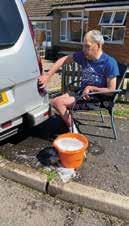
We have dedicated support workers 24 hours a day to support our clients in exploring all significant areas of independent living and personal development. We provide accommodation and personalised support for adults with learning disabilities, autism, ADHD, ADD complex needs and more. If you’d like to find out more, give us a call, email or visit our website!

passionate
If you have any questions or would like to receive advice, please call our office or use our contact form on www.aventuscare.co.uk to request a call/message.





To benefit people with disabilities, complex health needs, and/or sensory impairments. Adults are offered experiences that improve their individual and social development.


Provides adults who have a range of complex needs with full-time, personalised support within the homes of professional carers. Visit www.northamptonshire.gov.uk/ adultsocialcare and search ‘Shared Lives Northamptonshire’.


Brain injury (BI) is caused by a trauma to the head (head injury) or as a result of a physical illness. There are many possible causes, including road traffic accidents, assaults, falls and accidents at home or at work, as well as brain haemorrhage and cardiac arrest (causing lack of oxygen to the brain).
Many brain injuries are minor, causing temporary


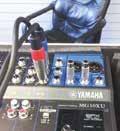
A card system designed to make the holder more aware of their personal safety, to encourage reporting of crime and to support them to seek help if needed. It will also help those providing assistance to access support for the user of the card and understand how to make them feel safer.
For further information, or to request an assessment, visit www.northamptonshire.gov. uk/adultsocialcare and search ‘learning disability and brain injury’ or contact your local council’s Customer Service Centre. See page 5.

symptoms such as concussion. However, sometimes the injury is more serious and causes longer lasting symptoms. Sometimes the individual has cognitive problems such as headaches, difficulty thinking, memory issues, attention deficits, mood swings and frustration. These injuries can be overlooked. Even though this type of BI is called ‘mild’, the effect on the family and the injured person can be significant.
Through a do with not do for mentality we encourage, support and enable individuals to gain and maintain independence along with accessing the community, appointments, medication, activities and much more...
As much as it would be nice for individuals to live on their own, they sometimes require extra support to live independently. At S4I supported living we provide 24 hour care and support and boast a move on flat for when a tenant is suitable to try the next step.
For any other questions, reach out to us on:

A more severe brain injury may result in the person losing consciousness for more than 30 minutes and memory loss after the injury of longer than 24 hours.
A person may be affected physically with loss of movement in limbs, or loss of the ability to speak. Several different types of specialist service cater for people with a brain injury. Rehabilitation can help the person and their family to work towards recovery. Individuals with a brain injury may also be eligible for support from Adult Social Care. Any services or support you may be eligible for will depend on the outcome of your needs assessment, described on page 5
If you are worried about your mental health, the usual starting point for advice is your GP, who should be able to identify the appropriate level of response. They may suggest some form of self-help using local resources.
There are day centres run by organisations such as Mind, Teamwork and Spectrum that may be able to help. In addition, weekly Crisis Cafés are held in Northamptonshire that specifically operate outside normal working hours (see page 51 for contact details). GPs also have access to a wide range of counselling and advice programmes that you may be referred to.
If your concerns appear more serious, your GP may refer you to a specialist mental health service. Countywide services work in partnership with both Primary Care and more specialist mental health services provided by the NHS to ensure that both health and social care needs are responded to. For information, visit www.nhft.nhs.uk/mentalhealth
For more information and to request an assessment, visit www.northamptonshire.gov.uk/ adultsocialcare and search ‘learning disability and brain injury’.
For people aged 16 and over who have experienced a brain injury. The service provides specialist assessment, rehabilitation and support with adjusting to living with brain injury, as well as offering support to families and carers.
Web: www.nhft.nhs.uk/cbi
To request an assessment or review from Adult Social Care, visit www.northamptonshire.gov. uk/adultsocialcare and search ‘mental health’. Alternatively, contact your local council’s Customer Service Centre. See page 5
In some circumstances, it may become necessary to consider providing an individual with mental health care and support by admitting them, against their own choice, to a specialist hospital under the Mental Health Act. This option should only be considered when all other means of providing care and support have been tried and been unsuccessful.

If a Mental Health Act assessment is necessary, the referral will usually be made by a health or Adult Social Care worker – for example, a GP. However, a nearest relative has the right to request that an assessment under the Act be considered by an approved mental health professional. The teams responsible for this can be reached on 0800 448 0828 (24 hours a day) or 01604 626938 (out of office hours).
Crisis Cafés in Northamptonshire
Anchor House
Northampton Mind, 6-7 Regent Square NN1 2NQ (Monday and Tuesday, 12.00pm to 10.00pm; and Saturday, 2.00pm to 10.00pm).
Tel: 01604 634310/624951
Daventry Mind
The Old Gasworks Car Park, Brook Street NN11 4GG (Wednesday, 5.00pm to 9.00pm).
Tel: 01327 879416
Mixing Bowl, The Kettering Mind, 49-51 Russell Street NN16 0EN (Tuesday, Wednesday and Thursday, 12.00pm to 11.00pm).
Tel: 01536 523216
Recovery Café, The Rushden Mind, Phoenix House, Skinner’s Hill NN10 9YE (Monday, Tuesday and Wednesday, 12.00pm to 10.00pm; and Sunday, 2.00pm to 8.00pm).
Tel: 01933 312800
Sanctuary, The Corby Mind, 18 Argyll Street NN17 1RU (Thursday and Friday, 12.00pm to 10.00pm; and Sunday, 2.00pm to 8.00pm).
Tel: 01536 267280
Wellingborough Mind
14 Havelock Street NN8 4QA (Thursday and Friday, 12.00pm to 10.00pm; and Saturday, 2.00pm to 8.00pm).
Tel: 01933 223591
The Act covers England and Wales and provides a statutory framework for anyone aged 16 and over who lacks capacity to make decisions for
themselves, or who has capacity but wants to make preparations for a time when they may lack capacity in the future. It sets out who can take decisions, in which situations, and how to do it.
Independent Mental Capacity Advocate (IMCA) IMCA services are for people who have been assessed as ‘lacking capacity’ to make specific decisions, primarily about serious medical treatment and long-term accommodation needs.
The local authority/NHS decision maker must refer you if you have no ‘appropriate’ family or friends and if you lack capacity to make a decision about either:
• Serious medical treatment.
• Long-term arrangements (more than 28 days in hospital/eight weeks in a care home).
• Deprivation of Liberty Safeguards.
For further information, call 0300 303 1660 or email helpline@voiceability.org
This is a legal document where you can say in writing who you would like to make certain decisions for you. The document can cover decisions about your finances and/or healthcare. However, you can only make this document legal if you are able to understand what it means. If you are interested in an LPA, you should speak to a solicitor.
Please note, if you have already made an Enduring Power of Attorney (EPA), it is still valid, even if it has not yet been registered, unless you decide to replace this with an LPA. EPAs and LPAs are defined in ‘Help with managing your money’ available at the website www.publicguardian.gov.uk
The Court of Protection may make someone your Deputy. The Deputy can make certain decisions for you if you cannot decide everything yourself. A Deputy must act in your best interest and will only be appointed where it is appropriate for your needs. The Deputy will be monitored by the Office of the Public Guardian which will ensure that the Deputy is doing their job properly. The Deputy could be given the responsibility for making decisions about either your finances or welfare, or both in some circumstances.
An application is required to the Court of Protection by the person seeking to control your finances. More information concerning this can be obtained from the Office of the Public Guardian. Visit www.publicguardian.gov.uk
An application can be made to the Department for Work and Pensions (DWP) for someone to act as your Appointee. This allows them to receive all your benefits on your behalf. An application will need to be made by the person
Dementia Care Advice Service
Northamptonshire Carers is the central point of contact for the Dementia Care Advice Service, in partnership with Alzheimer’s Society Northamptonshire. The Dementia Care Advice Service offers support for the person living with dementia and/or their carer.
The support line can offer an understanding ear and practical advice. Family carers are also entitled to an assessment of their needs which can take place by phone, online or face-to-face in their own home. This will look at their individual needs – which may include planning for the future or managing a stressful situation – and may result in a referral for respite or being signposted to specialist organisations, such as for benefit advice or for services and support. Northamptonshire Carers also supports people living with other long-term conditions. Furthermore, it can signpost to other services such as regulated care.
By working in partnership, Northamptonshire
Carers offers a wider variety of services including support groups, access to leisure activities and peer supporters (people who have been carers themselves) who can follow up with families beyond the assessment stage.
Carers’ support line: 01933 677907
Email: carers@northamptonshire-carers.org
Web: www.northamptonshire-carers.org
Write to: Northamptonshire Carers, The Anne Goodman Centre for Carers, 123 Midland Road, Wellingborough NN8 1LU
looking to take over control of your benefits. Visit www.dwp.gov.uk
Further details can be found on the Department of Health and Social Care’s website, www.dh.gov.uk and the DWP website, www.dwp.gov.uk
It may also be possible for your local council to assist in looking after your finances by becoming the Appointee or Deputy. Please contact your local council’s Customer Service Centre for further advice. See page 5.
Alzheimer’s Society local services provide information and support for you and for people diagnosed with dementia. For all these services, please email northamptonshire@alzheimers.org.uk
You can also call Dementia Connect on 0333 150 3456 or log onto the online forum at www.alzheimers.org.uk/talkingpoint to chat with people who may be in a similar situation to you.
These weekly sessions bring people together in a friendly and fun environment to enjoy singing familiar songs and sometimes learn new ones. The sessions are usually attended by the person with dementia along with a family member or carer like you. For details of times/locations, please contact northamptonshire@alzheimers.org.uk
Personalised information and guidance to help people navigate the maze of information and services after a dementia diagnosis. Trained staff can work with you and people living with dementia to help understand the diagnosis. Staff can also make you aware of things you may like to consider, such as finances, support at home, how to access activities, and respite. Staff can also complete statutory carers’ assessments on behalf of Northamptonshire County Council.
Keeping an active social life is key to helping someone with dementia feel happy and motivated.
Activities include something for everyone and are respectful, creative, innovative, multi-sensory and fun. Activities are supported by skilled staff, encouraging someone with dementia to do something creative and realise their potential, improving self-esteem and reducing loneliness.
Caring for someone with dementia can be extremely difficult, so having emotional support and practical advice from someone who understands what you’re going through might be beneficial.
Memory Matters offers a reassuring, confidential and safe place to talk to others about how dementia affects your life. Come along and make new friends, share experiences and be honest, without fear or embarrassment. Get tips from group members on how to support someone with dementia, as well as how to keep looking after yourself, and have your questions answered by our highly skilled, compassionate and experienced staff who run the sessions.
Venues for Memory Matters are held in Northampton, Kettering, Towcester, Daventry and Wellingborough.
The aim of the service is to ensure quality assessments, diagnosis and care for people with dementia and their carers. This includes timely and equal access to services, provisions of evidencebased treatments, monitoring and follow-up. If dementia is diagnosed early, more can be done to delay progression of the disease.
The MAS includes the following:
• A single point of referral for all people with a possible diagnosis of dementia over the age of 65.
• Supporting primary care to promote and facilitate early identification and referral of people with suspected dementia.
• Provision of high-quality accurate diagnosis of dementia early in the course of the disease.
• Communication of the diagnosis in a person-centred way to both the person with dementia and their carers.
• Ensuring that people with dementia and their carers have appropriate information that allows them to manage their care more effectively within their pathway and understand how to access other appropriate assistance when required.
• Engaging people with dementia and their carers in decisions about the care options available to them, including the development of advanced care plans.
• Ensuring the service is readily accessible and meets the range of needs of the local population.
• Ensuring continuity of care across pathways and integration with other care providers.
• Promoting awareness of dementia and reducing stigmatisation.
• Discussion about treatment and intervention options on an individual basis, according to presenting diagnosis and needs.
Treatment and intervention options could include workshops for people living with dementia and carers, medication and written information or signposting to support services such as Alzheimer’s Society, Age UK or Northamptonshire Carers.
Throughout Northamptonshire, there are four localities, and each locality has a dedicated MAS:
• Daventry/South Northants – 0300 027 2969.
• Kettering/Corby – 0300 274 949
• Northampton – 0300 027 1671.
• Wellingborough/Rushden – 0300 027 2740
The service operates five days per week, Monday to Friday, 9.00am to 5.00pm. Currently, referrals to the service are made via the individual’s GP. However, if you require any additional information, please contact your local team using the contact details above.
www.myfamilyourneeds.co.uk
For parents and carers of children with additional needs and those who support them.
Nursing and Residential Care available Please ask for more information
Olive
Row Care
• Located within walking distance of Kettering town centre

• Dedicated activities rooms
• Hair salon
• Nurse call system
• Access to gardens
• 54 en-suite bedrooms designed around 4 households
Olive Row Care Home – part of Peterborough Care, a family run organisation operating care homes since 1984



For further information regarding Olive Row Care Home, please contact us on 01733 562328 or on newcare@peterboroughcare.com. Alternatively, you can telephone 01536 484411 to discuss your needs.

Head Office - 35 Priestgate, Peterborough, PE1 1JL
Tel: 01733 562328
• email: info@peterboroughcare.com www.peterboroughcare.com

We suggest that you take paper with you when visiting care homes so that you can make notes. Please use this checklist in conjunction with the care homes checklist on page 40. You can download and print this checklist at www.carechoices.co.uk/checklists
Are there clear signs throughout the home?
Has the home been designed or adapted for people with dementia?
Are the home and grounds secure?
Are there prompts outside the residents’ rooms to help people identify their own?
Is the décor familiar to your loved one?
Do residents get a choice in terms of what they wear each day?
Are residents encouraged to be independent?
Can residents decide what to do each day?
Can residents have a say in the décor of their room?
Are residents able to join in with household tasks like folding washing?
Are there activities on each day?
Can residents walk around outside on their own?
Are residents sitting in front of the TV or are they active and engaged?
Are there rummage boxes around?
*See page 57.
Can residents get help with eating and drinking?
How often does the home review residents’ medication?
Does the home offer help if a resident needs assistance taking medication?
Do GPs visit the home regularly?
Are staff trained to identify when a resident might be unwell?
Are staff trained to spot when someone needs to go to the toilet?
Do the staff have any dementia-specific training/experience?
Will your loved one have a member of staff specifically responsible for their care?
Does the home follow a specific approach to dementia therapy, for example, validation therapy?
Will the home keep you informed about changes to your loved one’s care?
Does the home have a specific approach to end of life care?
Does the home keep up to date with best practice in dementia care?
All organisations need to know how they are performing. They are happy to receive your feedback on their service whether they are compliments or complaints. Feel free to tell them what you think, and your comments can be used constructively to improve the service.
If you do need to make a complaint, you should feel able to complain about any aspect of your care that affects your happiness or comfort. This could be about the way you are treated by a staff member, or the quality of the food served. You can also make comments and suggestions about possible improvements to your surroundings and the services provided.
Making a complaint should not be made difficult for you. Providers are required under essential standards of quality and safety to have a simple and easy-to-use complaints procedure that they will be happy to give you. If you are concerned about the care that you, a friend or a relative is receiving, it makes sense to speak to the manager before you take any further action. The problem may be resolved quite easily once they are made aware of it.
However, if you need to make a formal complaint, you should initially contact the registered owners of the service. They have a duty to respond to any complaints made. If your complaint is about a breach of regulations, contact your local office of the Care Quality Commission. See www.cqc.org.uk for contact details or phone 03000 616161
If your local council has arranged and funded your care, another option is to complain to your social worker/care manager. If you would like to raise a formal complaint with the council, then you can contact the Compliments, Comments and Complaints Team who will acknowledge this complaint and ensure it is provided to the correct service for investigation and response. The Customer Complaints Officer within Adult Social Care will also support this process. This team can also be contacted to log any compliments you are wishing to make.
North Northamptonshire Council
Compliments, Comments and Complaints Team, Sheerness House, 41 Meadow Road, Kettering NN16 8TL
Tel: 0300 126 3000
Email: myfeedback@northnorthants.gov.uk
Web: www.northnorthants.gov.uk/your-council/ comments-compliments-and-complaints
West Northamptonshire Council
Compliments, Comments and Complaints Team, One Angel Square, Angel Street, Northampton NN1 1ED
Tel: 0300 126 7000
Email: myfeedback@westnorthants.gov.uk
Web: www.westnorthants.gov.uk/your-council/ comments-compliments-and-complaints
Further information about the complaints procedures can be found at the websites above, where you can also complete an online complaint form. Please note that if you are acting on behalf of a friend or a relative, in compliance with the General Data Protection Regulation (GDPR), it may be necessary for your local council to confirm that the individual is happy for the complaint to be raised on their behalf. Where the council is required to access or share personal information about someone who is unable to consent to this directly, it may need to ask you for evidence of any formal consent to act on their behalf.
If you still aren’t happy with the response to your complaint, contact the Local Government and Social Care Ombudsman.
Tel: 0300 061 0614
Web: www.lgo.org.uk
Write to: PO Box 4771, Coventry CV4 0EH
If you find the process difficult and do not have anyone to support you, please contact VoiceAbility on 0300 303 1660 or visit www.voiceability.org
Within Northamptonshire, VoiceAbility offers many different types of advocacy services. The Independent Mental Health Advocacy (IMHA) service is for people who need support with their rights under the Mental Health Act. Secondly, the Independent Mental Capacity Advocacy (IMCA) service is for people who have been assessed as ‘lacking capacity’ to make specific decisions, primarily about serious medical treatment and long-term accommodation needs. You may be eligible for Care Act Advocacy if you are:
• An adult who needs care and support.
• A carer.
• A child who is making the transition to adult care services.
VoiceAbility also provides Young People’s Health Advocacy for young people staying in The Sett or The Burrows mental health wards.
For further information, call 0300 303 1660, email helpline@voiceability.org or visit www.voiceability.org/Northamptonshire
NHS Complaints Advocacy
NHS Complaints Advocates can help if you or someone you know has not had the care or
Health and social care services must be registered to show that they meet a set of standards. The Care Quality Commission (CQC) is the independent regulator of health and social care in England. It registers care providers and inspects and rates services. When things go wrong, the CQC can also take action to protect people who use services.
After an inspection of a care home or home care agency, the CQC publishes a report of what it found. The report looks at how well the service meets the CQC’s five key questions: Is the service safe? Effective? Caring? Responsive to people’s needs? Well led?
treatment you expect to receive from your NHS services, and you want to complain. Where your healthcare is provided or commissioned by the NHS, you can make a complaint using the NHS complaints process.
An NHS complaint might be about something that happened during care or treatment provided by:
• A hospital.
• Your General Practitioner (GP).
• A dentist.
• A pharmacist.
• An optician.
• An NHS-funded care home.
• Special services.
• A paramedic or ambulance staff member.
• NHS community staff.
• Other NHS staff or clinicians.
NHS Complaints Advocacy is independent of the NHS, confidential and free.
Web: www.voiceability.org (search ‘NHS complaints advocacy’).
Each care home and home care agency will get an overall rating of outstanding, good, requires improvement or inadequate. It will also get ratings for each key question. The ratings mean you can easily see where a service is performing well, and where it needs to improve.
It’s always a good idea to check inspection reports and ratings when choosing a care service. You can find reports and ratings on the CQC’s website (www.cqc.org.uk). Care providers must also display their latest rating at their premises and on their website.
You can also tell the CQC about your experiences of care – good or bad. It can use your information
to see where it should inspect next, and what to look out for when it does. If you want to share your experience of care, visit www.cqc.org.uk/share
You can choose a care home outside your local authority, although there may be financial implications to consider.
The home you choose must be suitable for your assessed needs and comply with the terms and conditions set by the local authority. The fees that your local authority will pay may vary. The local authority will seek to meet the assessed needs of people who require funding support in the most cost-effective manner. They may offer you the
Looking for care in your area? Want to know the quality rating of providers you’re considering? Care Choices, publisher of this Directory, has a website providing comprehensive details of care providers as well as essential information.
You can search by postcode, county or region for care homes, care homes with nursing and home care providers that meet your needs across the country.
Your search can be refined by the type of care you are looking for and the results can be sent to you by
A solicitor can give you impartial advice about wills, making gifts, estate planning and Lasting Powers of Attorney. Some can also offer guidance on immediate and long-term care plans, ensuring (if applicable) the NHS has made the correct contribution to your fees.
Lasting Powers of Attorney (LPAs) allow you to appoint someone you trust to make decisions about your personal welfare, including healthcare and consent to medical treatment, and/or your property and financial affairs. An LPA is only valid once registered with the Office of the Public Guardian. It allows for a person of your choice to make decisions
Tel: 0300 061 6161 • Web: www.cqc.org.uk
Email: enquiries@cqc.org.uk
Write to: The Care Quality Commission, Citygate, Gallowgate, Newcastle upon Tyne NE1 4PA
fees you would receive if you remained within the county, or they may offer you the fees that the local authority would pay in your chosen region. You must seek further advice before making your decision.
If you’re self-funded, you have freedom of choice to live wherever is suitable for you. If you move to live in another county and subsequently have eligible needs for residential care, then the county you move to would be responsible for your care fees.
email. They can also be saved and emailed to others.
The website includes detailed information for each care provider, including the address, phone number and the service’s latest CQC inspection report and rating (see page 56), indicating the quality of care provided.
You can also view an electronic version of this Directory on the site and have it read to you by using the ‘Recite Me’ function. Visit www.carechoices.co.uk
on your behalf at a time when you may be unable to do so.
The Court of Protection can issue Orders directing the management of a person’s property and financial affairs if they are incapable of managing their own affairs should they not have an LPA. The Court procedure is presently very slow, and the fees are quite expensive so preparing an LPA is always advisable, providing you have somebody sufficiently trustworthy to appoint as your attorney.
An ‘advance directive’ allows you to communicate your wishes in respect of future medical treatment,
www.carechoices.co.uk to find support in your area
but it is not legally binding. You may instead wish to make a living will, properly known as an ‘advance decision’, setting out treatment that you do not want to receive in specified circumstances, which would legally have to be followed, even if you die as a result.
Any proposed gift out of your estate needs careful consideration of the benefits, risks and implications, particularly on any future liability for care costs or tax liability. If you don’t have your own solicitor,
An adult at risk is someone over 18 years old who:
• Has needs for care and support (whether or not the local authority is meeting any of those needs).
• Is experiencing, or is at risk of, abuse or neglect.
• As a result of those care and support needs, is unable to protect themselves from either the risk of, or the experience of, abuse or neglect.
Abuse is the violation of an individual’s human or civil rights by another person or people. It can take many forms, such as:
• Physical abuse – including assault, hitting, slapping, pushing, misuse of medication, restraint or inappropriate physical sanctions.
• Domestic violence – including psychological, physical, sexual, financial, emotional abuse and honour-based violence.
• Sexual abuse – including rape, indecent exposure, sexual harassment, inappropriate looking or touching, sexual teasing or innuendo, sexual photography, subjection to pornography or witnessing sexual acts, indecent exposure and sexual assault or sexual acts to which the adult has not consented or was pressured into consenting.
• Psychological abuse – including emotional abuse, threats of harm or abandonment, deprivation of contact, humiliation, blaming, controlling, intimidation, coercion, harassment, verbal abuse, cyber bullying, isolation or unreasonable and unjustified withdrawal of
ask family or friends for their recommendations. Contact several firms, explain your situation and ask for an estimate of cost and an idea of timescales involved. Many firms will make home visits if necessary and will adapt their communications to meet your needs. It’s important to find a solicitor who specialises in this area of the law.
To find a solicitor, visit the Solicitors for the Elderly website at www.sfe.legal or call 0844 567 6173
services or supportive networks.
• Financial or material abuse – including theft, fraud, internet scamming, coercion in relation to an adult’s financial affairs or arrangements, including in connection with wills, property, inheritance or financial transactions, or the misuse or misappropriation of property, possessions or benefits.
• Modern slavery – encompasses slavery, human trafficking, forced labour and domestic servitude. Traffickers and slave masters use whatever means they have at their disposal to coerce, deceive and force individuals into a life of abuse, servitude and inhumane treatment.
• Discriminatory abuse – including forms of harassment, slurs or similar treatment; because of race, gender and gender identity, age, disability, sexual orientation or religion.
• Organisational abuse – including neglect and poor care practice within an institution or specific care setting such as a hospital or care home, for example, or in relation to care provided in one’s own home. This may range from one-off incidents to ongoing ill-treatment. It can be through neglect or poor professional practice as a result of the structure, policies, processes and practices within an organisation.
• Neglect and acts of omission – including ignoring medical, emotional or physical care needs, failure to provide access to appropriate health, care and support or educational services, the withholding of the necessities of life, such as medication, adequate nutrition and heating.
• Self-neglect – this covers a wide range of behaviour, including neglecting to care for one’s personal hygiene, health or surroundings, and includes behaviour such as hoarding.
Abuse can happen anywhere and be committed by anyone, including relatives, friends, neighbours, paid care workers, volunteers, professional staff or strangers. In Northamptonshire, the Safeguarding Adults Board brings together agencies whose responsibilities include safeguarding adults at risk of harm.
If you think you are being abused or want more information, contact your local council’s Customer Service Centre in confidence. See page 5 for contact details. Alternatively, you could report suspected abuse by using the online reporting form which can be found at www.northamptonshiresab.org.uk
If it is an emergency and you feel someone is in immediate danger, ring 999. If you believe a crime has been committed and it is not an emergency, you
should report it to the police on the non-emergency 101 number.
If you have concerns about the standards or application of regulations in a care home, you should contact the Care Quality Commission.
Tel: 0300 061 6161
Email: enquiries@cqc.org.uk
If your concern is about someone who is in residential care, please refer them to your local council’s Customer Service Centre. See page 5.
If you have concerns about the standards or application of regulations in a care home, you should contact the Care Quality Commission.
Citygate, Gallowgate, Newcastle upon Tyne NE1 4PA Tel: 03000 616161
Email: enquiries@cqc.org.uk
• West Northamptonshire Council.
• Northamptonshire Integrated Care Board.
The Northamptonshire Residents’ Panel is an opportunity for local people to give their views on local public services more regularly and directly –to have a greater say in influencing local decisions that matter.
The panel is used by:
• North Northamptonshire Council.

Healthwatch Northamptonshire is the independent

Panel members will be asked to complete surveys and give their views on specific topics relating to local public services throughout the year.
The panel is open to anyone who lives in the county and is aged over 16.
If you would like to join the panel, email consult@northamptonshire.gov.uk with your name, email address to be used for panel correspondence and the council area you live in.
people’s champion for everyone who uses health and social care services in the county. It gives patients, service users and local people an opportunity to influence and challenge decision makers about local health and social care services. By listening to your experiences of publicly funded
care, good or bad, Healthwatch Northamptonshire can help shape the services you receive. It has powerful, statutory rights to represent your views and they are used to influence the people who provide services and make decisions about them.
Healthwatch Northamptonshire is an independent organisation, run by Connected Together Community Interest Company (www.connectedtogether.co.uk).
Healthwatch Northamptonshire also provides information and signposting on any aspect of health and social care and has a searchable advice
This is a free, 24-hour dedicated helpline for older people across the UK. The Silver Line aims to combat loneliness in the over-65s by providing friendship, information and advice through calls
webpage, including local coronavirus updates, at www.healthwatchnorthamptonshire.co.uk/ advice-and-information
Find out more about Healthwatch Northamptonshire, how to share your views or how to get involved using the contact details below.
Tel: 0300 002 0010 (Monday to Friday, 10.00am to 4.00pm).
Text: 07951 419331
Email: enquiries@healthwatchnorthamptonshire.co.uk Web: www.healthwatchnorthamptonshire.co.uk
to trained volunteers.
Tel: 0800 470 8090 Web: www.thesilverline.org.uk
The main principles and objectives of the Association are:
The Northamptonshire Association of Registered Care Homes (NorArch) was formed in April 1983. At that time, the Association was organised as an informal get together and information-sharing group. However, NorArch has now transformed itself into a professional body representing a significant number of the independent registered care homes in the county.
NorArch’s membership includes residential and nursing care both for younger and older people and for people with learning difficulties, as well as specialist homes.
Membership is restricted to proprietors and managers of registered care homes in Northamptonshire. Members include smaller and larger single-unit to multiple-unit homes.
The ownership includes private and voluntary sectors.
• To provide a responsible body which will represent the interests and views of members to local and central Government and other bodies.
• To effect and maintain high standards in homes in Northamptonshire by the provision of a Code of Conduct for members which is an integral part of the criteria for membership.
• To promote the image of registered homes by the adoption of a professional approach to the operation of such homes.
• To liaise with other bodies with compatible aims for the mutual benefit of those bodies and the Association. NorArch arranges ‘Best Practice Events’ throughout the year in partnership with the NHS, North Northamptonshire Council and West Northamptonshire Council.
• To provide a forum for the exchange of ideas and information and for the discussion of problems.
NorArch is the only association that North Northamptonshire Council and West

Northamptonshire Council will negotiate with when annual fee increases are discussed. The membership is keen to embrace innovative and new concepts in care for both the elderly and
Age UK Northamptonshire
A local independent charity providing services and support throughout Northamptonshire. Some services are free, others have a charge. Tel: 01604 611200
Email: access@ageuknorthants.org.uk
Web: www.ageuk.org.uk/northamptonshire
Business Directory – an online service listing trusted and suitably qualified traders and businesses throughout Northamptonshire.
Carers’ Sitting Service – allows carers to take a break from their role. Also offers support and advice on matters which may concern carers. For example, benefits and allowances, aids and adaptations.
Collaborative Care Team – open to older people registered with GP surgeries in the East Northamptonshire, Kettering and Wellingborough areas, this service helps people stay independent and safe at home for longer.
Day Care at Home – a new service providing support to the most vulnerable and isolated people in Northamptonshire.
Extra Help at the End of Life – provides care to people in the last weeks of their life, enabling them to remain at home with their loved ones. Currently only available by referral from GP or hospital staff.
Gardening Service – reliable gardeners who can help you look after your garden.
Handyperson Service – carries out jobs around the home for older people, to help them live independently for longer.
Home Care Cleaning Service – cleaning service for older people in Northamptonshire to help them live independently in their own home.
people with learning difficulties.
For further information about NorArch, email admin@norarch.org.uk
Hospital Discharge and Community Team – provides short-term support to older people living with long-term health conditions. This service is available throughout Northamptonshire for anyone who is registered with a GP surgery.
Information and Advice Service – trained advisers provide advice on care homes, check entitlement to benefits and give information about housing, clubs and much more.
KGH Support Service – designed to improve the overall patient experience of older people at Kettering General Hospital.
Money Management and Support Service – if you need help sorting out your financial position, and/or need help with cash collection and bill payments, this service may be able to help.
Social Prescribing Service – the service has supported nearly 4,000 people, helping them explore what is important to them and find local activities and services that improve their wellbeing.
Telephone Befriending Service – a free service in which a DBS-checked volunteer will call for a chat with an older person who is at risk of feeling isolated and lonely.
Toenail Cutting Service – a regular toenail cutting service for anyone who is unable to manage their own nail care.
Wellbeing Centres: Day Care – a number of centres offer older people a safe, stimulating environment where they can take part in activities and meet and make new friends, improving their quality of life.
Age Care Advice – Northamptonshire
Operates a wide range of services and activities in the East of England designed to overcome the problems that older people, working-age adults and their families face when trying to organise formal care:
• Hospital discharge assessments.
• Home care.
• Finding a care home if you are self-funding.
• Finding the best home care if you are self-funding.
• Long-term care co-ordination.
• Night support at home.
• Carer support.
• Live-in care.
• Self-funding or privately funding assessments.
• Care home companionship.
• Supporting vulnerable adults when their parents can no longer provide care.
• Returning home from a residential care home setting.
Tel: 01778 219639
Email: agecareadvice.team@nhs.net
Web: www.agecareadvice.co.uk
Benefit Delivery Centre – Jobcentre Plus Tel: 0800 055 6688
Web: www.gov.uk/contact-jobcentre-plus/newbenefit-claims
Benefits Service – Community Law Service (Northampton and County)
Tel: 01604 621038
Email: enquiries@communitylawservice.org.uk
Web: www.communitylawservice.org.uk/welfarebenefits-advice
Citizens Advice
Provides legal and financial advice and support.
Central and East Northamptonshire
7/8 Mercers Row, Northampton NN1 2QL and 2b The High Street Wellingborough NN8 4HR
Tel: 0800 144 8848
Web: www.cencab.org.uk
Corby and Kettering
Tel: 01536 265501 (Corby).
Tel: 01536 482281 (Kettering).
Web:
www.citizensadvice.org.uk/local/corby-kettering
Daventry and District
The Abbey, Market Square NN11 4XG
Tel: 0808 278 7899
Web:
www.citizensadvicedaventryanddistrict.co.uk
North Oxon and South Northamptonshire
Tel: 0808 278 7906
Web: www.canosn.org.uk
Disability Service Centre
Web: www.gov.uk/disability-benefits-helpline
Get on Board
Operates a number of Champions, all with learning disabilities, who interact with the local community and organisations to get people talking, raise awareness and deliver training to help ensure equal rights for people with learning disabilities.
Tel: 07793 407848/07825 301850/07866 327647
Email: info@getonboarduk.com
Web: www.getonboarduk.com
GOV.UK
Web: www.gov.uk
Information and Access Point
The Guildhall, St Giles Square, Northampton NN1 1DE
Web: www.communitylawservice.org.uk
Northampton
49-53 Hazelwood Road NN1 1LG
Tel: 01604 621038
Rushden
32 High Street NN10 0PW
Tel: 01933 313020
Wellingborough
123 Midland Road NN8 1LU
Tel: 01933 313020
The lifestyle site for families, carers and practitioners supporting children and young adults with additional needs.
Web: www.myfamilyourneeds.co.uk
Office of the Public Guardian
Power of Attorney/supervision support.

Tel: 0300 456 0300
Web: www.gov.uk/power-of-attorney
The Care Quality Commission Citygate, Gallowgate, Newcastle upon Tyne NE1 4PA
Tel: 0300 061 6161
Email: enquiries@cqc.org.uk
Web: www.cqc.org.uk
Advocacy
VoiceAbility
Tel: 0300 303 1660
Email: helpline@voiceability.org
The Department for Work and Pensions
Web: www.dwp.gov.uk
The Department of Health and Social Care
Tel: 0300 790 4007
Web: www.dh.gov.uk
The NHS website
The UK’s biggest health website, using thousands of clinically validated articles, videos and tools to help people engage with their health, care and wellbeing.
Web: www.nhs.uk
The Pension Service
Tel: 0800 731 7898
Web: www.gov.uk/contact-pension-service
Web: www.voiceability.org/services/ northamptonshire
Compliments, Comments and Complaints Team
North Northamptonshire Council
Sheerness House, 41 Meadow Road, Kettering NN16 8TL
Tel: 0300 126 3000
Email: myfeedback@northnorthants.gov.uk
Web: www.northnorthants.gov.uk/your-council/ comments-compliments-and-complaints
West Northamptonshire Council
One Angel Square, Angel Street, Northampton NN1 1ED
Tel: 0300 126 7000
Email: myfeedback@westnorthants.gov.uk
Web: www.westnorthants.gov.uk/your-council/ comments-compliments-and-complaints
Customer Service Centre
North Northamptonshire Council
Tel: 0300 126 3000
(Monday to Friday, 9.00am to 5.00pm. Closed on bank holidays).
Web: www.northnorthants.gov.uk/contactus
West Northamptonshire Council
Tel: 0300 126 7000 (Monday to Friday, 9.00am to 5.00pm. Closed on bank holidays).
Web: www.westnorthants.gov.uk/your-council/ contact-us
Financial Assessment Team
North Northamptonshire
Tel: 0300 126 3000
Email: financialassessments.ncc@ northnorthamptonshire.gov.uk
West Northamptonshire
Tel: 0300 126 7000
Email: financialassessments.ncc@westnorthants.gov.uk
Carers UK
20 Great Dover Street, London SE1 4LX
Tel: 0808 808 7777
Web: www.carersuk.org
Northamptonshire Carers

123 Midland Road, Wellingborough NN8 1LU
Helpline: 01933 677907
Lakelands Hospice
Provides palliative and end of life care, free of charge, for people in Corby and the surrounding villages living with life-limiting illnesses such as cancer, chronic obstructive pulmonary disease (COPD), multiple sclerosis (MS) and advanced heart failure.
Butland Road, Oakley Vale, Corby NN18 8LX
Tel: 01536 747755 (9.00am to 5.00pm).
Web: www.lakelandshospice.org.uk
Northamptonshire Association for the Blind (NAB)
37 Harborough Road, Northampton NN2 7BB
Tel: 01604 719193
Email: helpline@nab.org.uk
Web: www.nab.org.uk
Email: carers@northamptonshire-carers.org
Web: www.northamptonshire-carers.org
TuVida
19 Pelham Road, Sherwood, Nottingham NG5 1AP
Tel: 0115 962 8920
Email: hello@tuvida.org
Web: www.tuvida.org
Royal British Legion (RBL)
Provides lifelong support for the Armed Forces community – serving men and women, veterans, and their families.
Tel: 0808 802 8080
Email: info@britishlegion.org.uk
Web: www.britishlegion.org.uk
for parents and carers of children with additional needs and those who support them.
Avery Healthcare offers a safe and supportive environment where residents can flourish, make new friends, maintain contact with their local communities and live a life of possibility.



• Residential, respite, dementia and nursing care
• Spacious, beautifully decorated bedrooms
• Nutritionally balanced seasonal menus

• Safe visits for family and friends
• Stimulating schedule of daily activities and entertainment
• Highly trained staff teams








Cottingham
Court, Occupation Road, Corby NN17 1EA Tel: 01536 264522
Sandalwood Court
Butland Road, Oakley Vale, Corby NN18 8QA
Seagrave House Care Home Advert pages 66 & 67
Occupation Road, Corby NN17 1EH Tel: 01536 629198
Welland House – Occupation Road
1 George Hattersley Court, Occupation Road, Corby NN17 1EA
Tel: 01536 403817
Glenmoor
Shirelodge


Ashdown House
13-15 Ashworth Street, Daventry NN11 4AR
Tel: 01327 879276
Bell Lodge
25 Bell Lane, Byfield, Daventry NN11 6US
Tel: 01327 262483
Boniface House
Spratton Road, Brixworth, Northampton NN6
Tel: 01604 883800
Brookside Care Home Green Lane, Braybrooke, Market Harborough

Flora Innes House
16 High Street, Byfield, Daventry NN11 6XH
Tel: 01327 260234
Kilsby House Residential Home Rugby Road, Kilsby, Rugby CV23 8XX
Tel: 01788 822276
Moors, The 51 London End, Upper Boddington, Daventry NN11 6DP Tel: 01327 860906

Orchard, The Malabar Fields, Daventry NN11 4DP
Tel: 01327 878802
Oxendon House Care Home
33 Main Street, Great Oxendon, Market Harborough LE16 8NE
Tel: 01858 464151
Solden Hill House
Banbury Road, Byfield, Daventry NN11 6UA
Tel: 01327 260234
Astley Hall
Farnborough Drive, Daventry NN11 8AL
Tel: 01327 227940 OP D PD MH SI YA
Badby Park
Badby Road West, Badby, Daventry NN11 4NH
Tel: 01327 301041 OP D PD MH SI YA
Brownlands Nursing Home
34 London Road, Daventry NN11 4BZ
Tel: 01327 876985
Longlands
London Road, Daventry NN11 4DY
Tel: 01604 362880 OP D PD SI YA
Abbott House – Oundle
Glapthorn Road, Oundle PE8 4JA
Tel: 01832 277650 OP D
Ashfield House – Raunds
Ashfield Avenue, Raunds, Wellingborough NN9 6DX
Tel: 01933 627280 OP D MH
Beeches Care Home Advert inside front cover
12 Higham Road, Rushden NN10 6DZ
Tel: 01933 318498 OP D PD MH SI
Clanfield Residential Care Home
3 Toll Bar Road, Islip, Kettering NN14 3LH
Tel: 01832 732398 OP D PD
Freestones Residential Care Home
85 Finedon Road, Irthlingborough, Wellingborough NN9 5TY
Pytchley Court Nursing Home
5a Northampton Road, Brixworth NN6 9DX
Tel: 01604 882979 OP D YA
Sibbertoft Manor Nursing Home Church Street, Sibbertoft, Market Harborough LE16 9UA
Tel: 01858 881304 OP D
Wheatsheaf Court Care Home
44 Sheaf Street, Daventry NN11 4AB
Tel: 01327 705611 OP D MH YA
Willows Nursing and Residential Home, The 105-107 Coventry Road, Market Harborough, Leicestershire LE16 9BX
Tel: 01858 463177 Advert page 69 OP D PD MH SI YA
Hillcrest
Acacia
Avenue
Kettering care homes
2 Windsor Avenue Desborough, Kettering NN14 2SS
01536 763297
78 Polwell Lane
Barton Seagrave, Kettering NN15 6UB Tel: 01536 722609
Agape Annexe
191 Havelock Street, Kettering NN16 9QB Tel: 01536 511479
Alderwood L.L.A. Ltd – Cransley
63 Loddington Road, Cransley, Kettering NN14 1PY
Tel: 01604 811838
Ashley Court Care Home
Reservoir Road, Kettering NN16 9QT Tel: 01536 482777
Aston House
16 Queensberry Road, Kettering NN15 7HL
Rushden Park
D PD SI
Avens Ltd
39 Denford Road, Ringstead, Kettering NN14 4DF
Tel: 01933 461908 PD LDA YA
Avery Park Care Home
231 Rockingham Road, Kettering NN16 9JB Advert pages 66 & 67
Tel: 01536 629670 OP D PD SI YA
Beech Close
Lower Street, Desborough, Kettering NN14 2XQ
Tel: 01604 364150 OP D PD SI YA
Burghley
17 Burghley Street, Kettering NN16 9LQ
Tel: 07786 065258 OP LDA MH YA
Burton Oaks
119 Station Road, Burton Latimer, Kettering NN15 5PA
Tel: 01536 517716 PD LDA SI YA
Tel: 01536 350060 OP D PD MH SI YA
Castle House
76-78 St Botolphs Road, Barton Seagrave, Kettering NN15 6SS
Tel: 01536 522565
Elm Bank Care Home
81 Northampton Road, Kettering NN15 7JZ
Tel: 01536 439257 Advert page 41
Gabriel Court Ltd
17-23 Broadway, Kettering NN15 6DD
Tel: 01536 510019
Glenkindie Lodge Residential Care Home
27 Harborough Road, Desborough, Kettering NN14 2QX
Tel: 01536 762919
Haydock House
89 Rockingham Road, Kettering NN16 9HX
Tel: 01536 517080
Heather Holmes Care Home
64 Rushton Road, Desborough, Kettering NN14 2QD
Tel: 01536 760418
Heatherington House
5 London Road, Kettering NN16 0EF

Tel: 01536 411064
Heathers, The 76 Rockingham Road, Kettering NN16 9AA
Tel: 01536 483176
Kettonby House
9 Kettonby Gardens, Kettering NN15 6BT
Tel: 01536 312820
Kingly Terrace
2 Essex Road, Rushden NN10 0LG
Tel: 01933 423680
Lily House
234 Barton Road, Barton Seagrave, Kettering NN15 6RZ
Tel: 01536 722715 LDA YA
Nene House
1 Sackville Street, Thrapston, Kettering NN14 4NZ
Tel: 01832 735280 LDA YA
Orchard House Residential Care Home
155 Barton Road, Barton Seagrave, Kettering NN15 6RT
Tel: 01536 514604 OP
Parvale House
223 Rockingham Road, Kettering NN16 9JB
Tel: 01536 484970
Perrywood House
78 Rockingham Road, Kettering NN16
Rockingham House
Rookery
SENSE – 129 Neale Avenue
are a small family run residential care home offering a true home from home environment. Our bespoke service means our residents are assisted by a long serving and highly trained staff and management team who can build deeply caring relationships with residents to ensure they always feel loved and supported.
Please The Old Vicarage A Care H o me o f D ist inction with Nursin g •H igh Qualit y Care • Seven Day Activities plus Outings • Free Bar Drinks • WiFi •B eautiful, Landscaped Gardens • Freshly Prepared, Locally S ourced Food

The Old Vicarage is located in the renowned conservation village of Weekley and has operated as a care home for the elderly since 1984.


Although based on a character Country House designed and built in 1873, the home benefits from extensive internal upgrading, and the addition of a purpose built nursing wing offering the best in care and medical facilities.
The house enjoys an impressive south-facing position with large gardens that have been nationally featured.
The home has a reputation for its high standards of care.
feel free to contact us to arrange a visit or to discuss how we

Smythe House
72 St Peters Avenue, Kettering NN16 0HB Tel: 01536 520528
Southleigh
31 London Road, Kettering NN16 0EF Tel: 01536 511166
St Anns Care Home
12 The Crescent, Kettering NN15 7HW Tel: 01536 415637
Thorndale
Malham Drive, Kettering NN16 9FS
Tel: 01536 526380
Westhill Park Care Home
1 Chataway Drive, Kettering NN15 7FF Tel: 01536 480555

Beaumont Nursing Home
8 Gipsy Lane, Kettering NN16 8TY Tel: 01536 416817
Cheaney Court Care Home
2 Harrington Road, Desborough, Kettering NN14 2NH Tel: 01536 761116
Claremont Parkway
Holdenby, Kettering NN15 6XE Tel: 01536
Weston Villa
179-183 Rockingham Road, Kettering NN16 9JA Tel: 01536 519111
Wicksteed Court Care Home
79-83 London Road, Kettering NN15 7PH Tel: 01536 414319
options? See the information beginning on page 38. Tell
Have you considered all
44 Stimpson Avenue
Abington, Northampton NN1 4LP
Tel: 01604 230457
51 The Drive
Kingsley, Northampton NN1 4SH
Tel: 01604 710145
Abington Park View
475-477 Wellingborough Road, Northampton NN3 3HN
Tel: 01604 719888
Abington View
6 Becket Way, Northampton NN3 6EX
Tel: 01604 390234
Alderwood 2 – Hillcrest 2
14 Hillcrest Avenue, Northampton NN3 2AB
Tel: 01604 376197
Ardington House
Wellingborough Road, Northampton NN1
Tel: 01604 439020
Berkeley, The
1-2 Elysium Terrace, Kingsthorpe Road, Northampton NN2 6EN
Tel: 01604 215058
Berrywood Lodge
27-33 Berrywood Road, Duston, Northampton NN5 6XA
Tel: 01604 751676 LDA MH
Bethany Homestead
Kingsley Road, Northampton NN2 7BP
Tel: 01604 713171
Boughton Green Road
144 Boughton Green Road, Kingsthorpe, Northampton NN2 7AA
Tel: 01604 791266
Boughton Lodge Care Home
105 Boughton Green Road, Kingsthorpe, Northampton NN2 7SU
Tel: 01604 720323
Burlington Court
Roseholme Road, Northampton NN1 4RS
D PD SI YA
MH YA
Tel: 01604 887660 OP D YA
Christchurch Court
– 2 Christchurch Road
Abington, Northampton NN1 5LL
Tel: 01604 824203
Church View Residential Home
8 The Drive, Kingsley, Northampton NN1 4SA
Tel: 01604 713098 Advert below OP
Collingtree Park
110 Windingbrook Lane, Northampton NN4 0XN
Tel: 01604 651013 Advert page 41 OP D YA
Crescent House
3 The Crescent, Northampton NN1 4SB
Tel: 01604 791141 OP D PD SI
Fair Haven Care Home
66 St Georges Avenue, Northampton NN2 6JA
Tel: 01604 712050 LDA MH
Farthings
86 Lumbertubs Lane, Northampton NN3 6AH
Tel: 01604 643726 OP D PD LDA YA
Ferns, The
43 Marshalls Road, Raunds, Wellingborough NN9 6ET
Tel: 01933 624406 OP D PD LDA MH YA
Glenside Residential Care Home

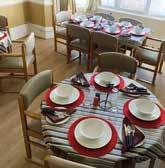
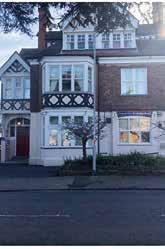
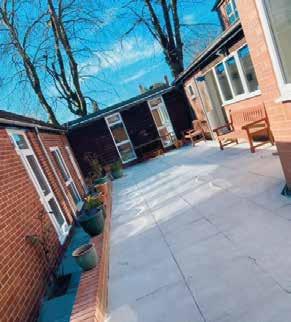
179-181 Weedon Road, Northampton NN5 5DA
Tel: 01604 753104 OP D MH YA
Grafton House
49 The Drive, Kingsley, Northampton NN1 4SH
Tel: 0208 327 1800 LDA MH
Heathcotes (Moulton)
Grosvenor House, 16 Chater Street, Moulton NN3 7UD
Tel: 01604 499376 PD LDA MH SI YA
Highfield
50 Abington Avenue, Northampton NN1 4PA
Tel: 01604 21505 LDA MH YA
Leys, The
63 Booth Rise, Boothville, Northampton NN3 6HP
Tel: 01604 642030 OP D
Living Life (UK) Ltd t/a the Banyan Tree
– 53 Bostock Avenue
Abington, Northampton NN1 4LN
Tel: 01604 639859 LDA MH YA
8 The Drive, Northampton NN1 4SA
Our talented team is like family. Each member has passion for care and is commited to delivering it tailored to each resident. We believe care is person-centred and driven by communication, not task. Our holistic care creates the opportunity to talk, listen, laugh and share day to day conversations.
We are commited to protecting all our care home residents and staff. We ensure that things are put in place to protect them. Our approach to safeguarding residents is included in our “Safeguarding and Whistleblowing” policies.
For any questions, please contact us on:
T: 07306 073279 or 01604 713 098
Email: churchviewmanager@gmail.com
“We are here to make life easier.”
Margaret’s Rest Home
30-32 Kingsley Road, Northampton NN2 7BL
Tel: 01604 710544 OP D PD YA
Meadow View
421 Welford Road, Northampton NN2 8PT
Tel: 01604 843923 OP D PD LDA MH SI YA
Merrifield House Residential Care Home
90 High Street, Wootton, Northampton NN4 6JR
Tel: 01604 705654 Advert below right OP D MH
Nazareth House – Northampton
118 Harlestone Road, Northampton NN5 6AD
Tel: 01604 751385 OP
Nicholas Rothwell House
290 Harborough Road, Kingsthrope, Northampton NN2 8LR
Tel: 01604 841882 Advert below OP PD
No 39
39 Stimpson Avenue, Northampton NN1 4LP
Tel: 01604 230457 LDA YA
Northants Accommodation and Social Care
202a Kettering Road, Northampton NN1 4BN
Tel: 01604 626363 LDA YA
OakLodge Care Home
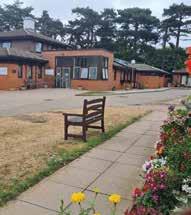
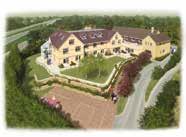
2 Peveril Road, Duston, Northampton NN5 6JW
Tel: 01604 752525 OP D
Obelisk House
Obelisk Rise, Kingsthorpe, Northampton NN2 8SA
Tel: 01604 850910 OP D PD SI
Orchard Hill
100 Orchard Hill, Little Billing, Northampton NN3 9AG
Tel: 01604 403602 OP PD LDA MH SI YA
Orchard View
97 Orchard Hill, Little Billing, Northampton NN3 9AG
Tel: 01604 416309 D PD LDA MH SI YA AD
Pinetrees
The Avenue, Dallington, Northampton NN5 7AJ
Tel: 01604 589233 D PD LDA MH SI YA AD
Primrose House
202 Harborough Road, Northampton NN2 8DJ
Tel: 01604 626272 OP MH YA
Rathgar Care Home
349 Kettering Road, Northampton NN3 6QT
Tel: 01604 499003 OP D
Merrifield House Care Home
Email: merrifieldhouse@aol.com 90
‘A Home away from Home’
Located in a delightful village.
• Short & long term care
• Respite care
• Old age
• Dementia
• Mental Health
• Single rooms with ensuite facilities
• Person Centred Care
Give us a call, drop in for a cup of tea, look around. We will be delighted to answer your questions.
Nicholas Rothwell House is equipped to the highest standards, with tastefully decorated rooms all of which have en-suite facilities. Our friendly, qualified staff provides 24 hour care, as well as Short (respite) and Long stay care. All meals are freshly prepared on the premises from locally sourced produce.

Other services available include Hairdressing, Chiropody, Optician, Aromatherapy, Activity programme & Outings.
T: 01604 841882
E: office@nicholasrothwell.co.uk
E: loraine@nicholasrothwell.co.uk
www.nicholasrothwell.co.uk
290 Harborough Road, Kingsthorpe, Northampton NN2 8LR


There’s been lots of smiles, tears and laughter over the last year, through it all we’ve been there for our residents and their families, relentlessly. Our professionally trained team is always on hand, providing personalised care to match every unique need.
Whether you’re looking for long-term nursing or dementia care, respite or post operation / illness recovery. Richmond Villages Northampton are here to support you or your loved one with personalised care in a warm and friendly environment.

Personal care and medical needs
Round-the-clock nursing, dementia and residential care
Personal Protective Equipment (PPE)
Freshly prepared homemade meals
A choice of private en-suite bedrooms
A variety of daily activities
Beautiful interiors and landscaped gardens
“Richmond Northampton continues to offer outstanding service, wonderful activities, fabulous food, and above all genuine care for my mother.”
ResCare
1 Monmouth Road, Northampton NN5 7EF
Tel: 01604 414770 OP LDA SI YA
Richardson Duston
23 Duston Road, Duston, Northampton NN5 5AR
Tel: 01604 791266 OP LDA YA
Richardson Grove
8 Kingsthorpe Grove, Kingsthorpe, Northampton NN2 6NT
Tel: 01604 791266 OP LDA YA
Richardson Mews, The Kingsland Gardens, Kingsthorpe, Northampton NN2 7PW
Tel: 01604 791266 OP PD MH SI YA
Royal Mencap Society
– 1-2 St Albans Close
St Albans Close, Northampton NN3 2RJ
Tel: 01604 785775 LDA
Rycroft Apartments
114 St Georges Avenue, Northampton NN2 6JF
Tel: 01604 626272
Southfields House
Farmhill Road, Northampton NN3 5DS
Tel: 01604 499381
Spinney Hill House 56 Spinney Hill Road, Northampton
St
St Georges
100 St Georges Avenue, Northampton NN2 6JF
Tel: 01604 713269 D PD LDA MH SI YA AD
St John’s Home
Wellingborough Road, Weston Favell, Northampton NN3 3JF
Tel: 01604 401243 Advert below OP
St Michaels House
1-3 St Michaels Avenue, Northampton NN1 4JQ
Tel: 01604 250046 OP MH YA AD
Stoke House
145 Harborough Road, Northampton NN2 8DL
Tel: 01604 215057 LDA MH YA
Tabs@42
42 Stimpson Avenue, Abington, Northampton NN1 4LP
Tel: 01604 230457 PD LDA YA
Templemore Care Home
121 Harlestone Road, Northampton NN5 6AA
Tel: 01604 751863 OP D YA
Timken Grange
Timken Way South, Duston, Northampton NN5 6FR
Tel: 01604 594310 OP D
Warren, The Kent Crescent, Upton, Northampton NN5 4WE
Tel: 07598 144376 OP MH YA
Wilton House
74 Kingsley Road, Northampton NN2 7BL
Tel: 01604 713100 LDA MH YA
provides you with a warm, friendly, home environment in a landmark historic building. Beautiful landscaped gardens

. Sensitively modernised
. Single & double en-suite rooms
Attractive lounge areas & dining rooms
Kind, well-trained staff
. Fully equipped to care for you
admin@stjohnsreshome.co.uk 01604 401243 Wellingborough Road, Weston Favell, Northamptonshire, NN3 3JF
Angela Grace Care Centre, The
4-5 Cheyne Walk, Northampton NN1 5PT
Tel: 01604 633282 OP D MH YA
Apollo House
Argyle House, The Avenue, Dallington, Northampton NN5 7AJ
Tel: 01604 316620 OP D
Ashurst Mews Care Home Advert pages 66 & 67
Northampton Lane North, Northampton NN3 7RQ
Tel: 01604 553840 OP D PD MH SI YA
Brampton View Care Home
Brampton Lane, Chapel Brampton, Northampton NN6 8GH Advert page 41
Tel: 01604 321506 OP D PD YA
Christchurch Court – 2 Christchurch Road
Abington, Northampton NN1 5LL
Tel: 01604 824203 OP PD MH SI YA
Christchurch Court – 4 Christchurch Road
Abington, Northampton NN1 5LL
Tel: 0844 264 0533 OP PD MH SI YA
Cliftonville Care Home
Cliftonville Road, Northampton NN1 5BE
Tel: 01604 553842 Advert pages 66 & 67 OP D PD YA
Cotswolds, The
178 Cotswold Avenue, Duston, Northampton NN5 6DS
Tel: 01604 864466 OP PD SI YA
Cunningham House
Hilltop House, Ashton Road, Hartwell, Northampton NN7 2EY
Tel: 01604 864466 OP PD SI YA
Hastings Lodge & Hastings Cottage
20-22 Althorp Road & 6 Althorp Road, St James, Northampton NN5 5EF
Tel: 01604 750329 OP D PD LDA MH SI YA
Kingsthorpe Grange
296 Harborough Road, Kingsthorpe, Northampton NN2 8LT
Tel: 01604 821000
OP D MH YA
Oakleaf Care Group Ltd, The (Hartwell)
Hilltop House, Ashton Road, Hartwell, Northampton NN7 2EY
Tel: 01604 864466 OP PD SI YA
Orchard House
Ashton Road, Hartwell, Northampton NN7 2EY
Tel: 01604 864466 OP D PD MH YA
Phoenix House
218-220 Kettering Road, Northampton NN1 4BN
Tel: 01604 626272 OP MH YA
Richmond Village Northampton
Bridge Meadow Way, Grange Park, Northampton NN4 5EB Advert page 78
Tel: 01604 353019 OP D PD YA
Spencer House Care Home Advert pages 66 & 67 Cliftonville Road, Northampton NN1 5BU
Tel: 01604 553843 OP D PD MH SI YA
St Matthews Ltd – The Avenue
2 The Avenue, Spinney Hill, Northampton NN3 6BA
Tel: 01604 644455
St Matthews Unit 29-31 St Matthews Parade, Kingsley, Northampton NN2 7HF Tel: 01604 711222
Symphony House Nursing Home
D MH YA
D MH YA
43-45 Queens Park Parade, Northampton NN2 6LP Tel: 01604 722772 OP PD
Turn Furlong
Off Rookery Lane, Kingsthorpe, Northampton NN2 8BZ
Tel: 01604 850800
Weston Favell Houses
37a-37b St Peters Gardens, Weston Favell, Northampton NN3 3JT
D PD YA
Tel: 01604 864466 PD SI YA
2 Martins Court, Church Way, Weston Favell
Northampton NN3 3EN
Tel: 01604 864466 PD SI YA
3 Martins Court, Church Way, Weston Favell
Northampton NN3 3EN
Tel: 01604 864466
YA
Wycliffe House
2 Christchurch Road, Northampton NN1 5LL
Tel: 01604 824203
Blakesley
2 High Street, Blakesley, Towcester NN12 8RE
Tel: 01327 860587
Brackley Fields Country House Retirement Home Halse Road, Brackley NN13 6EA
Tel: 01280 704575
Cheney House Rectory Lane, Middle Cheney, Banbury OX17 2NZ Tel: 01295 710494
Clare House Residential Home
12 Whittlebury Road, Silverstone, Towcester NN12 8UD
Tel: 01327 857202
Farm Cottage
8 Milthorpe, Weedon Lois, Towcester NN12 8PP Tel: 01327 861073
Have you considered all housing options? See the information beginning on page 38.
Holly House Residential Home 36 Green Street, Milton Malsor, Northampton NN7 3AT Tel: 01604 859188

Lakes, The Duncote, Towcester NN12 8QA Tel: 01327 352277
With so many providers to choose from, where do you start?
•
•
•
•
•
Livability Hanover Drive
50 Hanover Drive, Brackley NN13 6JS
01280 840598
Livability Hawkins Close
3 Hawkins Close, Brackley NN13 6HG
Tel: 01280 706850
Livability Holly Close
6 Holly Close, Brackley NN13 6PF Tel: 01280 701447
Livability Remus Gate
11 Remus Gate, Brackley NN13 7HY Tel: 01280 709894
Livability Westminster Croft
3 Westminster Croft, Brackley NN13 7ED
Tel: 01280 705348
Oakfield at Yardley Hastings
Castle Ashby Road, Yardley Hastings, Northampton NN7 1EL Tel: 01933 664222
Ridgway House 1 Swinneyford Road, Towcester NN12 6HD
Stone Cottage
8 Milthorpe, Weedon Lois, Towcester NN12 8PP
South Northamptonshire care homes with nursing
Brackley Care Home
Wellington Road, Brackley NN13 6QZ
Tel: 01280 313135
Brook House Care Home
Water Lane, Towcester
Alderwood L.L.A. Ltd – Dybdale Crescent 1 Dybdale Crescent, Wellingborough NN8 5EX Tel: 01604 811838
Alderwood L.L.A. Ltd – Hayway
49 Hayway, Rushden NN10 6AG
Tel: 01604 811838
Alderwood L.L.A. Ltd – Irchester
168-170 Station Road, Irchester, Wellingborough NN29 7EW
Tel: 01604 811838
YA
Advertisers are highlighted
Alderwood L.L.A. Ltd
– Rushden
302 Wellingborough Road, Rushden, Wellingborough NN10 6BB
Tel: 01604 811838
Alderwood L.L.A. Ltd
– The Chestnuts
296 Bedford Road, Rushden NN10 0SE
Tel: 01933 353244 LDA YA OP
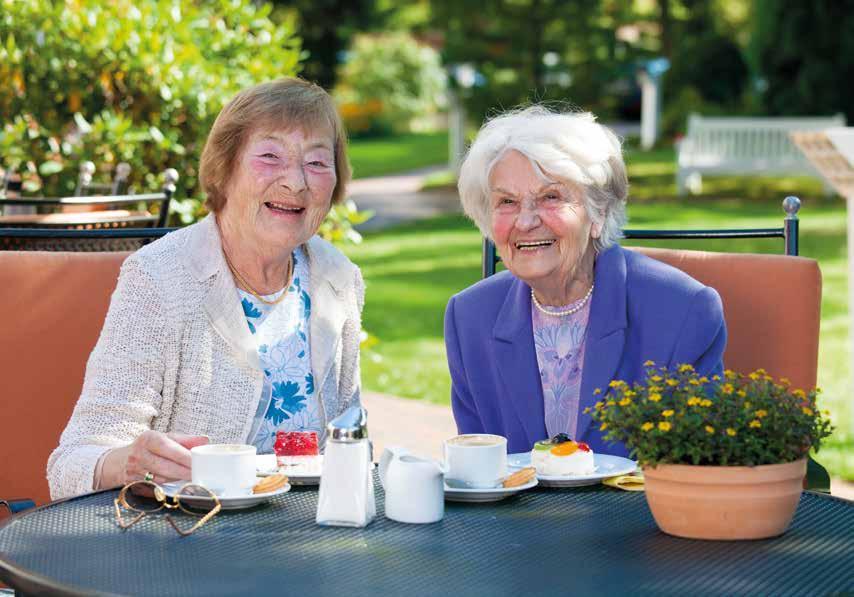
Alderwood LLA Ltd Addington Road
264 Addington Road, Irthlingborough, Wellingborough NN9 5UT
Tel: 01604 811838 LDA YA
Aspen House
277 Wellingborough Road, Rushden NN10 9XN
Tel: 01933 419345 PD LDA MH
Bilton Court
Windermere Drive, Queensway, Wellingborough NN8 3FR
Tel: 01933 697510 Advert page 83 OP D
Blossoms
20 Swans Pool Parade, Wellingborough NN8 2BZ
Tel: 01933 273920 LDA YA
Conifers Residential Care Home, The The Conifers, 1a Lodge Road, Rushden NN10 9HA
Tel: 01933 779077 PD LDA MH SI YA
Creative Support – The Chestnuts
1 Poplar Street, Wellingborough NN8 4PL
Tel: 01933 275330 LDA
Creative Support – Willowtree House
7 Poplar Street, Wellingborough NN8 4PL
Tel: 01933 222452 LDA
Duke’s Court Care Home
159 Northampton Road, Wellingborough, Northamptonshire NN8 3PN Advert pages 66 & 67
Tel: 01933 589043 OP D PD MH SI YA
Glenvale Park Care Home
1 Juniper Grove, Wellingborough, NN8 6AD
Tel: 01933 420844 Advert page 85 OP D YA
Grangefield Residential Care Home
60 Northampton Road, Earls Barton, Northampton NN6 0HE
Tel: 01604 812580
Great Glens Facility
149-151 Midland Road, Wellingborough NN8 1NB
Tel: 01933 274570 MH YA
Heathcotes (Park View)
10 Westfield Road, Wellingborough NN8 3JT
Tel: 01933 223041 OP
Heath Rise
4 Heath Rise, Wellingborough, Northampton NN8 5QN
Tel: 01933 676786 LDA
Highbury Residential Care Home
Highbury, 114 Irchester Road, Rushden NN10 9XQ
Tel: 01933 395511 D PD LDA MH SI YA
Hillcrest
Hillcrest, Wellingborough NN8 5BD
Tel: 01933 272281 LDA
Lancum House
Bush Close, Hardwick Road, Wellingborough NN8 3GL
Tel: 01933 445770 OP D
Lataya House
86 Wymington Road, Rushden NN10 9LA
Tel: 01933 311526 LDA YA
Linden Manor
159 Midland Road, Wellingborough NN8 1NF
01933 270266
Martins, The
1b Wymington Road, Rushden NN10 9JU Tel: 01933 235491
Oakfield (Easton Maudit) Ltd
Easton Maudit, Wellingborough NN29 7NR
Tel: 01933 664222
Park House Care Home
50 Park Road, Wellingborough NN8 4QE
Tel: 01933 443883 Advert page 85
Penrith Drive
55 Penrith Drive, Queensway, Wellingborough NN8 3XL
Tel: 01933 678681
Southwood House
44-48 Doddington Road, Wellingborough NN8 2JH Tel: 01933 276473
Tasker House
160 Westfield Road, Wellingborough NN8 3HX Tel: 01933 276447
Victoria House
77 Victoria Road, Rushden NN10 0AS Tel: 01933 354780





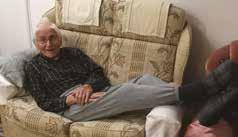


Living Life (UK) Limited
Care Choices Ltd has taken every care to ensure that the information contained in this Directory is accurate at the time of print. The company cannot accept responsibility for any errors or omissions in the publication, including if an organisation varies from the information included in an advertisement, the editorial or the listings. Care Choices Ltd does not endorse or support any particular organisation included in the Directory. ©2022 Care Choices Ltd. Care Choices Ltd reserves all rights in the titles Care Choices and HOMES Directories and their design. Care Choices™ is a trademark of Care Choices Ltd.
Ref. No: 4001/Northamptonshire14/1022. Reproduction of any part of this publication in any form without the written permission of Care Choices Ltd is prohibited.
Published by: Care Choices Ltd, Valley Court, Lower Road, Croydon, Nr Royston, Hertfordshire SG8 0HF. Tel: 01223 207770.
Director of Policy and Communications: Jo Dovey.
Director of Sales: David Werthmann.
Editors: Olivia Hubbard, Angharad Burnham.
Lead Editor: Henry Thornton.
Content Editor: Aislinn Thompson.
Sales Manager: Paul O’Callaghan.
Regional Sales Supervisor: Vanessa Ryder.
Senior Sales Executives: Tony Boyce, Hannah O’Neill, Susan Speaight.
Sales Executive: Jaimie Modi.
Director of Creative Operations: Lisa Werthmann.
Studio Manager: Jamie Harvey.
Lead Designer: Ruth Keating.
Graphic Designers: Rebecca Mendil, Patrycja Radzka, Tyler Smith.


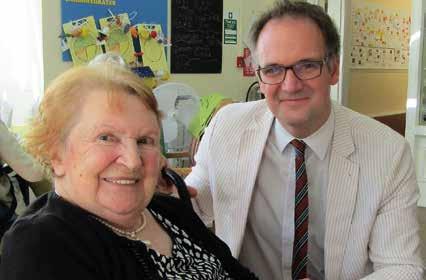
Established over 30 years ago, Meadow View Care Home is based in the beautiful picturesque grounds of Irchester in Wellingborough. The area benefits from a range of amenities including a health centre, a chemist, a school, a library, churches, shops, public houses and a country park.
We provide premium residential and nursing care for the elderly, to enable them to continue living an active and independent life, in warm, safe and comfortable surroundings.
We deliver a comprehensive range of care under one roof, including palliative, respite, and convalescent care, as well as offering many types of specialist care including Alzheimer and Dementia. We recognise each individual is unique. Our compassionate and experienced carers aim to offer the highest standard of residential care for the elderly to deliver only the best for your loved ones.
No wonder Meadow View is in the ‘Top 3 Most Recommended’ Care Homes in Wellingborough! Call us now to arrange a visit.


Care with dignity
W: www.wellbeingcare.co.uk
E: meadowview@wellbeingcare.co.uk
